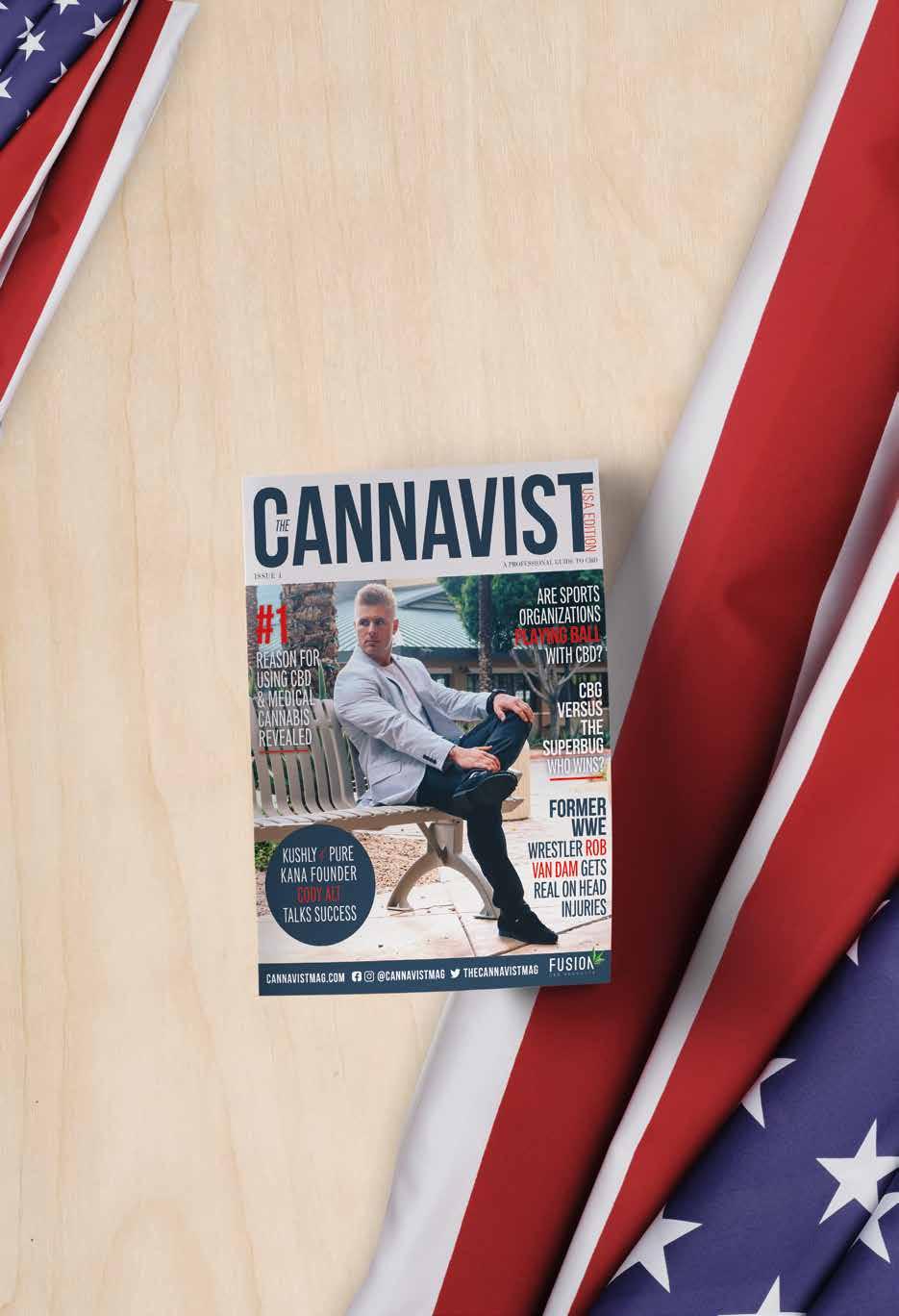










The Editor Róisín Delaney
Assistant Editor Gordon Stribling
Journalist Caroline Barry
Creative Director James Parnell
Head of Design Hayley Parker
Lead Graphic Designer
Connor Dimberline
Graphic Designer Ayaz Arshad
Junior Graphic Designer Aaron Rana
Design Support Lucy Booth
Marketing Manager Katie Loomes

Senior Web Developer Aadil Popat
Junior Web Developer Kain Alden
Marketing Executive Carrie Strouther
Photographer Robyn Keetley
Finance Director Joanne Stubley
Accountant Kris Worton
Finance Executive Anna Difusco
Finance Executive Rochelle Warsop
General Manager Abida Razaque
Sales Manager Tom Slack
Client Partnership Manager Stephen Culf
Sales Executive Jason Bacon Sales Executive Baz Bassra
Sales Executive Peter Masters
Director Pom Kaila
Director David Turner
Managing Director Paul Caplin
This publication and the products shown herein are intended for an 18+ audience. The comments and opinions given by contributors to this publication are not the views of the editor or magazine, unless otherwise stated. The products featured in this magazine are not sponsored, and were included at the decision of the editor / publisher and were not seen or altered by the suppliers in any way prior to publication. While every effort is made to respect editorial and advertising standards, The CANNAVIST cannot accept liability for issues raised or comments made by those featured in this magazine. Should you have a query about the content in this publication, email the editor: editorial@cannavistmag.com
Welcome to autumn!
At times this year it felt like autumn was too far out of reach.
We posed questions like ‘what will the second half of the year bring?’ and, ‘I wonder what this will mean for going back to school or university?’
And yet here we are, in our so-called much welcomed new normal. We’ve been eating out to help out, shedding the dreaded ‘Quarantine 15’ while going back to work and seeing friends again, albeit at a distance. In the land of CBD and medical cannabis, we are starting to see some real positives come through. One such positive note is the success of the CBD sector which in recent months has seen a surge in interest and sales. It’s fair to say the CBD space in the UK & Ireland is now flourishing. Medical cannabis patient numbers in the UK are believed to be increasing 20% month-on-month this year while in Ireland, the government approved a ‘cannabis courier’ delivery system for patients who were forced to cocoon in lockdown and could no longer collect prescriptions. The CBD market has already surpassed the expectations set out by market insiders in January and we have a whole quarter to go yet. Also in recent months it was revealed that the NHS is looking into producing its own cannabis-based medicinal products with a view to conducting clinical trials for children with epilepsy in the UK. All very positive signs indeed. These developments and more can be found in this issue, but our main focus at this time of year is sleep. It’s the one thing we all have in
common, and with it being autumn, we thought we would delve into the complex world of sleep problems in this issue. From sleep disorders to mental health to the clocks going back, our range of leading experts have gathered everything you need to know about CBD and your body clock in one place.
Thank you to Marc at CBD Queen who sent us a sample of their new CBD Body Oil for our readers. Based in Brighton, CBD Queen is a passionate family run company committed to providing the highest quality and purest CBD products. If you like your sample, go to cbdqueen.co.uk to view the full range.

The Cannavist is published by Orange Fox Media Limited in Derby, United Kingdom. The Cannavist is printed and distributed by Warners Group Publications in the UK. The Cannavist is a member of the Independent Press Standards Organisation. We abide by the Editors’ Code of Practice and we are committed to upholding the highest standards of journalism.
If you think such a standard has not been met in this issue of the magazine, and you would like to make a complaint, email the editor at editorial@cannavistmag.com. We will endeavour to respond to your complaint as soon as possible, or within five working days. If we are unable to resolve your complaint, or if you would like more information about the IPSO Editors’ Code, go to ipso.co.uk. The Cannavist (print) ISSN: 2633-4097. The Cannavist is a registered trademark. For all advertising enquiries email: advertising@cannavistmag.com. For event enquiries, email: events@cannavistmag.com. Got an editorial opportunity or work in PR? Email the editorial team: editorial@cannavistmag.com. For more information about this magazine, go to Cannavistmag.com or call the head office on 0044 (0) 1332 650 239. Office hours are Monday-Friday, 9am-5pm.

The news in brief Billy Caldwell & the NHS London study: CBD & functions of the brain Cancard launches

The future of CBD in Europe: narcotic or novel? Stressed elephants get CBD








Regulatory and Compliance Lead, Centre for Medicinal Cannabis. Director, Regulatory & Compliance Unit at the Association for the Cannabinoid Industry. Dr Parveen completed her PhD in organic chemistry from Imperial College London and is a fellow of the Royal Society of Chemistry. She has held various directorship roles in the generic and herbal pharmaceutical industry with over 20 years of expertise in bulk drug substance and product development including clinical trials, commercial launches, technology transfers and manufacture for ANDA & MA submissions. She has developed several innovative technologies in the pharmaceutical field which is clear from her patents. She has worked closely with various international health authorities on numerous commercial generic pharmaceutical and herbal pharmaceutical product launches and submissions. Most recently, in the cannabis space she was instrumental in the THC project for seed to capsule development, passing pre-approval inspection by US-FDA.
Clinical neuroscientist Elisabeth Philipps, PhD, runs a health consultancy specialising in the nutritional neurology, the endocannabinoid system and phytocannabinoids including CBD.

Dr Philipps regularly presents at conferences and events, and provides expert opinion for the national press, specialist healthcare publications and health companies. You can contact Elisabeth via social media:

Instagram - @drelisabethphilipps & Linked In - Dr Elisabeth Philipps
Dr Balu is founder of the Emotional Wellness Clinic and Scientific Advisor to Cannaray. Dr Balu qualified as a Medical Doctor from the Prestigious Stanley Medical College in Chennai, India before completing his Basic Psychiatric Training in Sheffield. Dr Balu works as a NHS Consultant Psychiatrist in Kensington and Chelsea. He works closely with a multidisciplinary team which manages common mental disorders including anxiety disorders, depression, OCD, PTSD and Bipolar affective disorder under his expert supervision. In addition to prescribing medicines and recommending psychological treatment, he works with a wide range of professionals offering life coaching, ultrawellness treatment, neurotherapy and magnetic treatment.

James is Head Tailor at Tailored Wellbeing, a British CBD brand with a manufacturing process as tailored as the sharp suits that inspired the company name. He also knows a thing or two about flavour, having trained as a chef at a Michelin-starred restaurant, worked in restaurants in Scotland, Spain and Dubai and developed e-liquids for major vape brands. This issue, James explains that cannabis terpenes are about a lot more than just flavour.


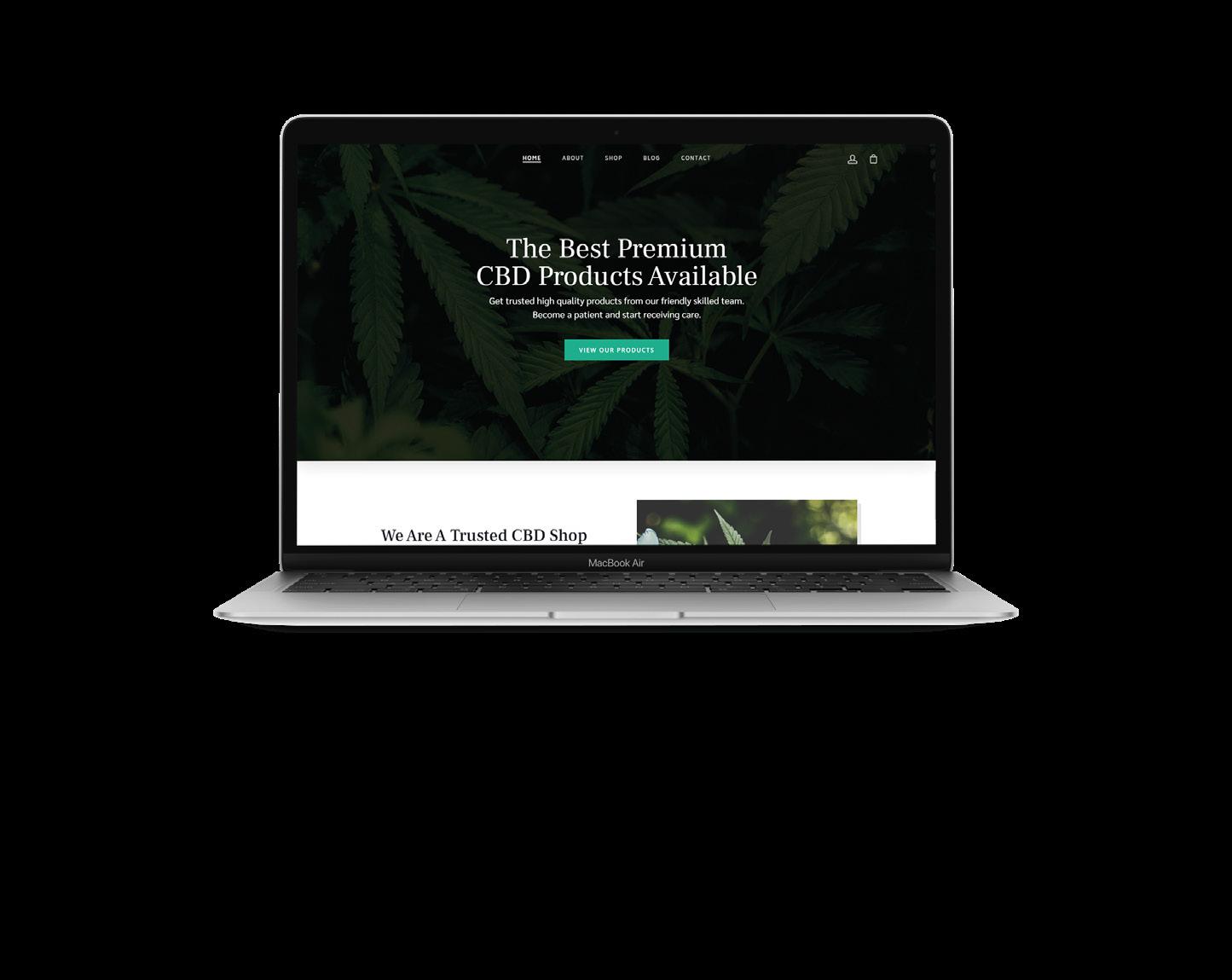









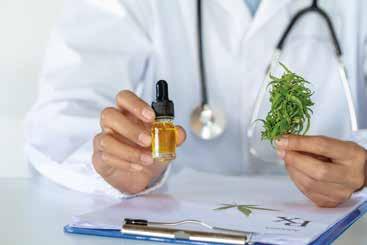






*US brands only. CBD pet products are not permitted in the UK.



A round-up of the latest hemp, CBD and medical cannabis stories making the news.

A breakthrough trial has found that CBD reduces pain and potentially symptoms of a nerve condition called peripheral neuropathy. The condition is thought to affect 1 in 10 people over the age of 55, with one of the most common causes being Type 2 diabetes. Researchers leading the trial at Scripps Mercy Hospital in California said they found no negative side effects from the application of CBD to the participants’ skin.
Nike has teamed up with size? a UK-based retailer owned by JD Group, to make hemp-based trainers. A pair of Nike Air Zoom Type ‘Hemp’ will set you back £140. A spokesperson for size? said, “We’ve drawn influence from minimalistic Japanese design and built the pair with hemp across its uppers for a raw, natural aesthetic.”

Europe’s CBD market is expected to grow by 400% according to new market research. The Orian Research Group says the current market size is estimated to be worth €450 million, representing 31% of the global CBD oil share, second only to North America. It suggests that by 2028, CBD products could account for 0.15% of the health and wellness sector in Europe. The European CBD market is now believed to be on course to reach at least €1.5 billion by 2023.
Don’t expect to see legal CBD food and drink items before 2023 at the very earliest, a new report from CBD-Intel warns. Sources in Europe say the quality of novel food applications received to date has been ‘wanting’.
Market research specialists at CBD-Intel say it is likely, as a result, that many applications will be sent back for further work or turned down out of hand.
The owner of what has been dubbed Liverpool’s answer to Amsterdam-style coffeeshops, The Chillin’ Rooms, has said he has been given the green light to operate. In business on-and-off since 2002, Gary Youds told the CannamanTV podcast that he has received the backing of politicians on both sides to operate the cannabis club from its location in Kensington, Liverpool. He said that he expects official approval by mid-October as he told the podcast host, “It’s not the Dutch model or the Spanish model, it’s the Scouse model…”
A young company based in Vancouver, Canada has successfully made Cannabigerol (CBG) from yeast. Willow Biosciences, an 18-monthold company, is running a pilot production of 500 litres (132 gallons) of the non-psychoactive cannabinoid, with the first samples due in October. According to Willow’s CEO, the company will be the first ‘to biosynthetically produce material amounts of cannabinoids.’
The father of Jorja Emerson, Robin Emerson, has been appointed to the board of directors for Brains Bioceutical. The tireless medical cannabis campaigner from Northern Ireland is to assume the role of Head of Corporate and Social Responsibility. Jorja Emerson (4) suffers with a rare chromosome deletion called 1q4 and in 2018 she became one of the first in the UK to access a legal medical cannabis prescription. Robin hopes to pursue an accessible, high quality product range in his daughter’s name. A portion of all profits from the Jorja range will be donated to the Brains Jorja Emerson Foundation, which supports low-income families who require access to medical cannabis medication as well as medical tests, family counselling, and special needs equipment. Speaking on his appointment, Robin said: “Brains Bioceutical has already achieved a landmark EUGMP CBD API standard, manufactured here in the UK, and the future plans will change the face of the industry in the UK. The icing on the cake is the creation of the Jorja-focused brand and the charitable foundation that will be the legacy of my daughter.”

US documentary ‘Weed the People’ explores the hopeful experiences medical cannabis patients have while physicians and parents of children with cancer call for more research of its healing potential. Available on NETFLIX UK & IRELAND.
Ireland’s Department of Health spent almost €9,000 on courier services to collect and deliver medical cannabis from the Netherlands. Dozens of Irish patients who could not travel to collect their prescriptions during lockdown received their supply to their doors. It’s not known how long this service will continue. According to figures from June 2020, just 31 Irish patients had been granted ministerial licences to bring cannabis-based medicines into the country, with the Netherlands the most popular destination of origin.
US Senate Republican Leader Mitch McConnell has said face masks made of hemp fibres are ‘one of the best’ ways to battle the spread of Covid-19. He made the comments while touring a hemp factory in his home state of Kentucky.
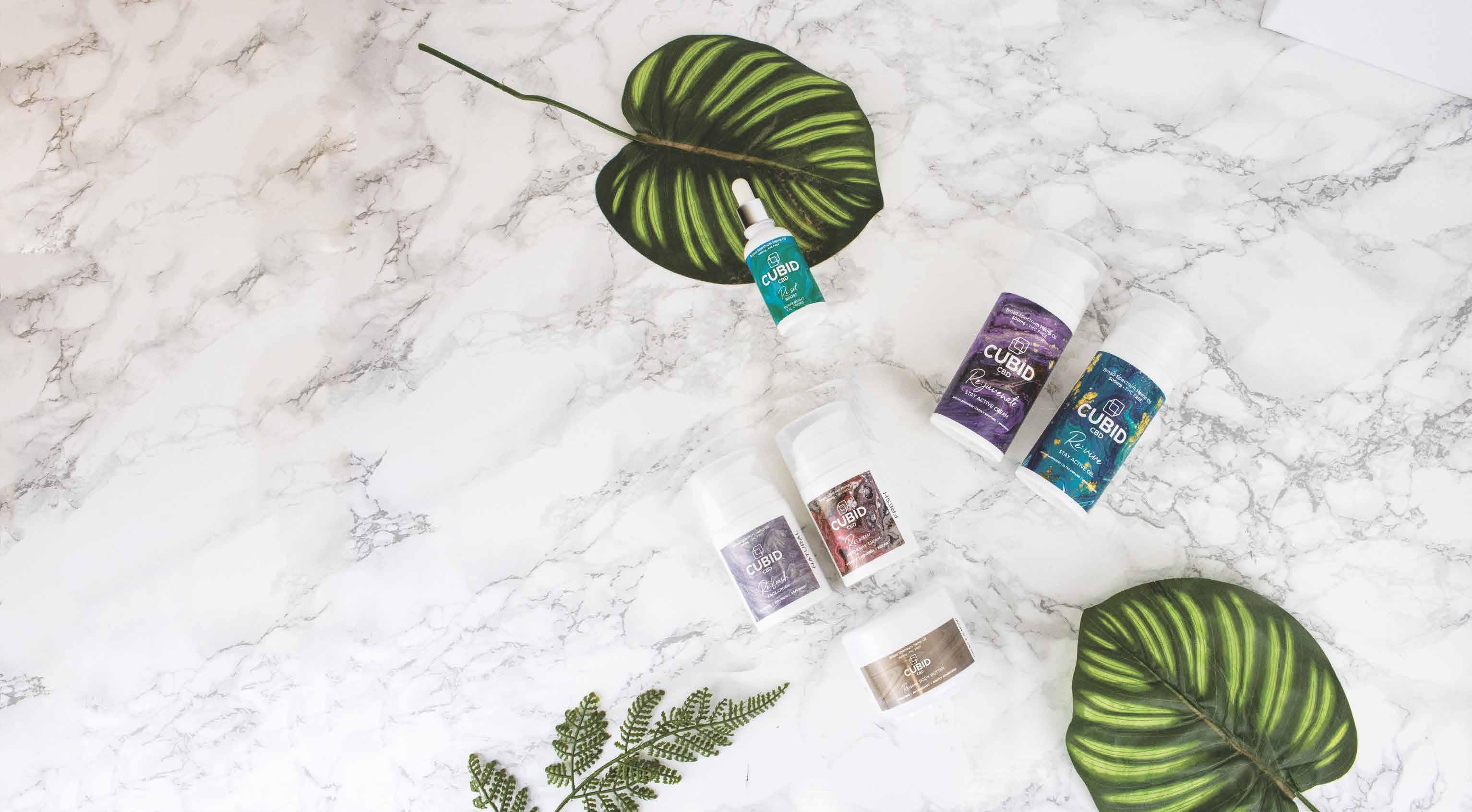










The NHS faces pressure to grant Billy Caldwell a new medical cannabis prescription, following remarks of Northern Ireland’s Health Minister and open letter from mother.
Words by Róisín Delaney, The EditorThe Health Minister for Northern Ireland, Robin Swann, has said he hopes a solution can be reached in order to support the ‘long term safety and wellbeing‘ of 15-year-old Billy Caldwell from County Tyrone.
The comments come after months of tireless campaigning by Charlotte Caldwell, whose severely epileptic son Billy has had two medical cannabis prescriptions withdrawn in the past. In early September 2020, the mother and long time campaigner appealed to the health
departments in London and Belfast to set out a care plan which would include NHS funding for her son’s cannabis-based medicine prescription, something he currently gets on a private patient basis.
This comes after Caldwell received a positive recommendation from the newly established Refractory Epilepsy Specialist Clinical Advisory Service (RESCAS), made up of the UK’s leading paediatric neurologists. The panel, which convened in July at Great Ormond Street Hospital in London, concluded that the teenager’s medicine must be continued, but as of the time of writing, no care plan or funding had been set out by the Department of Health at Stormont.
The Caldwells have been accessing medical cannabis privately for Billy in the absence of any NHS support. Private prescriptions, while legal in the UK, can cost more than £1,000 per month to purchase and import from abroad. Billy was diagnosed with a severe form of epilepsy as a young child, which could see him experience hundreds of seizures per day. In an interview with The CANNAVIST in July, Charlotte Caldwell said her son’s life depends on him getting his cannabis medicine. At that time,
Billy had been seizure free for 16-weeks while taking his privately accessed medication. “I think if I was entirely honest, it’s fear. Fear that I will go to bed and Billy would have a seizure… It’s fear that keeps me going. If I give up, Billy will not survive.”
The mother and campaigner also published an open letter in September, appealing to the NI health minister and health secretary Matt Hancock to intervene.
Following the discontinuation of legal proceedings at the Belfast Crown Court on September 7, Robin Swann MLA gave a statement saying, “I understand that the paediatric neurology team involved in Billy’s care made a referral to the National Refractory Epilepsy Specialist Clinical Advisory Service (RESCAS) and have received the advice of this expert panel. It should be noted that RESCAS is an advisory service and clinical responsibility for the care of the patient remains with the referring paediatric neurology team. It is not appropriate for me to intervene in this clinical decision making... I am assured however that all of the advice received from RESCAS is currently being carefully considered in order to reach a solution for Billy to support his long term safety and
wellbeing. I very much hope that the RESCAS process will lead to a sustainable solution, providing Billy with the care and support he needs.”
A spokesperson for the Health Secretary Matt Hancock said: “Health is devolved and access and funding of treatments in Northern Ireland is a matter for the Health Minister in the Northern Ireland Assembly.”
The call for action by the Caldwells comes two years after medical cannabis was legalised in the UK, and almost one year since the first cannabis based medicine products (CBMPs) were approved for prescription on the NHS.

It’s fear that keeps me going. If I give up, Billy will not survive.
“Photo credit Jonny Waite Media
Asingle dose of CBD has been shown to improve blood flow to the region of the brain responsible for memory and learning, a recent UK study has revealed.
Researchers at University College London (UCL) have found that CBD increased blood flow to the hippocampus.
This area of the brain is said to play a critical role in the formation, organisation, and storage of new memories. The research could lead to better therapies for those with conditions that affect the memory such as Alzheimer’s disease and post-traumatic stress disorder (PTSD).
Commenting on the developments, Dr Micheal Bloomfield, professor of psychiatry at UCL, said: “There is evidence that CBD may help reduce symptoms of psychosis and anxiety. There is some evidence to suggest that CBD may improve memory function.
“Additionally, CBD changes how the brain processes emotional memories, which could help to explain its reputed therapeutic effects in PTSD and other psychiatric disorders.

“However, the precise mechanisms underlying the effects of CBD on memory are unclear.”
In the study, which has been published in the Journal of Psychopharmacology, researchers set out to discover how CBD could potentially influence cerebral blood flow in different parts of the brain involved in memory processing.
A group of 15 participants with no history of cannabis use were given 600 milligrams of CBD at different times over the course of one week and then 600 milligrams of a placebo before monitoring the effects. MRI brain scans were utilised using a technique called
arterial spin labelling which monitors the blood oxygen level changes.
CBD was shown to significantly improve blood flow to both the hippocampus and the prefrontal cortex, the area of the brain used for decision-making. According to Dr Bloomfield, this is the first study of its kind to show that CBD can improve blood flow to these ‘key regions involved in memory processing.’
He added: “This supports the view that CBD has region-specific blood flow effects in the human brain, which has previously been disputed.
“If replicated, these results could lead to further research across a range of conditions characterised by changes in how the brain processes memories, including Alzheimer’s disease, where there are defects in the control of blood control flow, along with schizophrenia and post-traumatic stress disorder.”
New research has shown positive signs of CBD supporting brain functions like memory and decision making.



























European Hemp Company started with a single idea: to create the best possible hemp extract, ethically and responsibly, to be used in a myriad of beneficial applications; and thus to improve the wellbeing of our planet’s residents. By deploying a unique combination of the best possible resources and ingredients;almost 20 years of knowledge of herbal medicine and the cannabis plant; and a passion for the environment, a special kind of product is born – a product which is lovingly produced with the consumer at the forefront of our mind.
Since being established in 2018, European Hemp Company has been providing premium hemp products to the world; and it has no plans to stop anytime soon. Having entered the market running, European Hemp Company is now a respected member of the European hemp and CBD industry and offers an extensive range of products which have been fully tested and certified. As a fully licensed seller of hemp and CBD products manufactured in the UK, all our customers are guaranteed the best possible qualityand a high standard of consistency.
With a product range based around exceptional quality European and American hemp, grown by experts who understand the importance of a clean finished product, European Hemp’s key focus is on developing
and cultivating wild and heirloom strains for unusual cannabinoid and terpene profiles. Our expert team aims to manufacture and distribute the cleanest, highest quality extracts available, to anywhere in the world. Our finest organic hemp products are cultivated and harvested by a team of professionals, before being put through an advanced CO2 extraction process and molecular distillation to ensure an unparalleled hemp extract and CBD oil.
European Hemp Company has stepped out of the box, pushed boundaries, and is constantly formulating new ways of utilising this amazing plant. Now the company is going global.
Over the years, the founders have developed a network of cannabis professionals, all with innovative ideas and a passion to push research into hemp and cannabis in a new direction. Thepassion and commitment to unity displayed by every single person within the company creates a solid and transparent supply chain, which again ensures quality – but at a fair price for all, especially the end user. Our products are up to 60% cheaper than the leading brand and adhere to higher quality standards than those imposed by industry bodies.
This is what happens when the supply chain unites with the dual values of transparency and love for the earth, its plants and all its inhabitants. Access to authentic hemp extracts the way nature intended has never been easier or sweeter.
Sustainability has never been more important to the global community. As a society, humans have abused our planet and its contents; and now we are facing the cost of our actions as the planet heats up and animal and plant species die. Hemp draws more carbon dioxide from the air than most other crops – one hectare of industrial hemp is capable of absorbing around 15 tonnes of carbon dioxide – and this means that the more hemp that is planted, the cleaner our air is.
In addition to its environmental benefits, hemp has a broad array of applications, with use cases including:
Hemp oil and seeds are a well-documented ‘superfood’, containing essential fatty acids as well as several essential vitamins and minerals;
Hemp fabric is soft and sturdy; and has been produced around the world for centuries;
The strength and insulating properties of hemp have led to its use in ‘hempcrete’, a building material made with hemp and lime; and
Due to its extensive root system, hemp is particularly effective as a ‘mop crop’, which can be planted to clean harmful contaminants and impurities from soil and wastewater: most notably, hemp has been planted in Chernobyl to decontaminate the surrounding soil of radioisotopes and toxic residues. Economic productivity, environmental recovery and our own health could all be facilitated by having more hemp in our lives.
European Hemp Company provides a carefully selected range of the finest quality hemp and CBD products, many of which contain CBD oil extracted from heirloom hemp plants grown by some of the world’s most attentive and experienced hemp farmers. Once our scientifically perfect extraction process is added into the equation, the result is the best hemp products available.


Two years after the legalisation of medical cannabis in the UK, more than one million people will have peace of mind that their medication will not result in a criminal record.
Words by Róisín Delaney, The EditorOver one million British adults are eligible to apply for a new exemption card called Cancard, available from November this year.
Designed by medical cannabis patients in collaboration with senior police officials, the card will be available on the second anniversary of the legalisation of medical cannabis in the UK on November 1. The initiative has been developed with the backing of active MPs, GPs and high-ranking police officials, and is seen as a landmark development for the estimated 1.4 million medical cannabis patients across the UK.
Backed by the Police Federation which represents every rank and file police officer in the country, with a working group that includes senior officers from organised crime and the National Police Chiefs Council, the new scheme is set to highlight both the inequity of access to medicinal cannabis while affording patients peace of mind
that their use of the medicine will not result in a criminal record. It also highlights the difficult position that frontline police officers are often confronted with when enforcing possession offences since the law changed in 2018.
unavailable through the NHS and remain beyond the means of all but a few patients.
Those eligible and in possession of a Cancard will be able to identify themselves to police as verified medicinal cannabis patients and will have access to an open source legal defence provided by Cancard should they require it.
As of September 9, patients can register interest in the scheme in order to be one of the first to officially apply on November 1.
Cancard was conceived by Carly Barton, one of the UK’s most prominent advocates for medicinal cannabis law reform. Commenting on the launch, Ms Barton, said:
“We all know that cases where patients have proved legitimate medicinal use are unlikely to make it to court, and if they do these cases are consistently dropped… “There is an opportunity to provide something that changes this by way of providing a service that benefits both the patients and the police. Cancard should give patients peace of mind and police confidence in using their discretion before any stress has been caused to vulnerable people.”
The Baroness, Molly Meacher, House of Lords, has thrown her support behind the initiative, saying: “More than a million patients will at last be free from the fear of arrest for taking their cannabis medicine to relieve their pain or suffering, thanks to the Cancard.”
Cancard will take the form of a holographic photo ID card which has been developed in collaboration with GPs and will be verified at each patient’s surgery. The card has been created for people who suffer from conditions that private healthcare clinicians have been prescribing for since the legalisation of medical cannabis. Such treatments are currently
Crispin Blunt MP, has described the last two years for medical cannabis patients as ‘a wretched situation,’ saying: “The initiative is a welcome step forward that provides necessary immediate relief and I look forward to even further progress to ensure this medicine is legally available to all who need it.”
Simon Kempton is a serving Police Office in Dorset. He is also Operational Policing Lead and a member of the National Board of the Police Federation of England and Wales. He says initiatives like Cancard serve the best interests of officers, as well as patients.


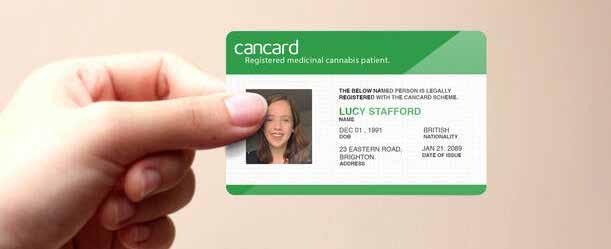
“I did not join the police to arrest people who are simply unwell and trying to manage their symptoms or pain. In fact I joined to help people in that position. Initiatives such as Cancard are important because they give police officers vital information which they can use when they have to make decisions on the street.”
Martyn Underhill, Police and Crime Commissioner for Dorset said he believes the carded system will give patients peace of mind that their health does not warrant a criminal record. “More than a million patients in the UK qualify for a private cannabis prescription for a range of conditions, but sadly many of them cannot afford this and so could face criminalisation if they are found in possession of what to them is a vital medicine. The Cancard will provide them with assurance that their ill health will not lead to a criminal record, while it will also be a valuable tool to help frontline officers, saving them time by providing immediate verification of genuine medical patients and therefore giving them confidence to use their discretion.”


As the European Commission considers the positions of the United Nations and World Health Organization on CBD, the UK is maintaining its position that CBD is a novel food. What does this mean for the future of CBD in Europe?
Words by Gordon StriblingThe UN is to vote on whether to reclassify certain aspects of the cannabis plant in a move that could reshape the European CBD industry.
Delegates will convene in December to decide whether to adopt the recommendation of the World Health Organization [WHO] which proposes to remove low-THC cannabis extracts from the Single Convention on Narcotic Drugs of 1961. Both the UK’s Food Standards Agency (FSA) and the Home Office have said that they do not consider CBD to be a narcotic regardless of the decision and the FSA will move ahead with processing novel food applications from January, 2021. However, the European Commission (EC) has made the preliminary decision to treat CBD as a narcotic, in which case CBD could not be marketed as a food supplement in the Eurozone.
Ricardo Geada, senior associate of the Cannabis Law team at Mackrell Solicitors, said that he did not expect the FSA to change its stance on CBD in the UK.
However, the situation is uncertain as we do not yet know for certain which EU policies the UK will adopt post-Brexit.
He said: “We don’t know what our relationship with the EU is going to be after December. I can’t see why we wouldn’t adopt many of the regulations across.
“However, on this narcotic point, if we do then obviously the Home Office and the Food Standards Agency will have to change their viewpoint on it.”
The European Food Safety Authority (EFSA) has paused all novel foods applications while the EC considers its position.
The agency is expected to pass all pending UK applications to the FSA from the new year, as the transition period ends.
Geada said: “We have many clients that are looking at the novel food
situation, but they’re also waiting to see how this translates and, secondly, whether or not they should wait until next year when the Food Standards Agency takes complete control.”
Enforcement of CBD regulations has historically been patchy across the continent, so it remains uncertain as to what impact any ruling would have on individual EU member states and the exiting UK if it was to align itself with the EC’s current position.
Elliott Rolfe, Mackrell’s head of Psychoactive Medicines Law & Regulatory said: “The effect that [the UN vote] is going to have domestically is very unclear, because there won’t be any new rules that prohibit it being sold as it is now, either way.
“Explicitly excluding CBD from the convention has the potential to make life a lot easier for food and cosmetics businesses; but I think it ultimately depends on how the domestic regulators and the EC want it to be treated in law, and
I think you’re going to see lots of legal arguments in both directions as to what can and can’t be done with it.
“At least if they leave it in the convention, it shouldn’t affect the UK food industry in the same way [as the EU] anyway.”
If the UK and EU maintain their respective positions on the novel food status of CBD, it could present a huge opportunity to the UK industry. A regulated British industry could take the lion’s share of the European market, with the rigorous novel food process putting UK products at a higher international standing, boosting consumer confidence. Meanwhile, European businesses could be left with only synthetic CBD, depriving consumers of the potential benefits of all natural, full spectrum cannabis extracts.
Commenting on these latest developments on the bloc, the European Industrial Hemp Association (EIHA) issued a press release claiming that the EC’s position on hemp extract as a
narcotic would ‘kill the hemp sector.’ Managing director Lorenza Romanese said: “This preliminary view stands against any logic and is nothing but unfair. The whole hemp sector is working extremely hard and has planned a €3.7 million investment to commission unprecedented studies on THC and CBD under a joint Novel food application, in full transparency and under the monitoring of EFSA.”

“We don’t know what our relationship with the EU is going to be after December. I can’t see why we wouldn’t adopt many of the regulations across.”Thomas Quine via Flickr




A zoo in Poland plans to treat stressed elephants with CBD in a landmark study.
Words by Caroline BarryWarsaw Zoo is planning to test CBD on its elephants to help treat stress in what is believed to be the first study of its kind.
Experts at the zoo made the decision to treat some of its African elephants following the death of elder elephant, Erna, in March.
The zoo has turned to CBD to find an alternative to the existing methods of combatting stress such as pharmaceutical drugs.
A statement issued by Warsaw Zoo said: “We have started a project during which we will check the effect of CBD hemp oils on the mood of our animals.
“To begin with, the program included Fredzia the elephant, who after the recent death of Erna was a bit stressed and had a bit of trouble finding her position in the herd.”
As well as Fredzia who is already being given the CBD oil, her fellow female herd member, Buba will
be treated with the cannabinoid extract.
The two African elephants will be given liquid doses of a high concentration of CBD oil through their trunks before being monitored closely.
The doses are comparable to those given to horses: one vial containing a dozen drops of CBD, two-to-three times a day.
The first stage of the trial involved collecting the elephants’ faeces, saliva and blood samples to monitor their cortisol levels.
Cortisol is a hormone produced in the bodies of humans and animals in reaction to stressful situations.
CBD may be able to help lower cortisol levels by interacting with the body’s endocannabinoid system.
Veterinarian at the zoo, Agnieszka Czujkowska, is leading the project. She said: “We are planning to give them the CBD and measure the cortisol again.
“[That way] we will know for sure if the oil is working or not.”
Elephants are matriarchal animals, meaning that the older females lead the herd. As a result of Erna’s death, the younger elephants have been grieving and showing signs of stress.
The zookeepers hope that this CBD oil will stop the elephants from fighting as they try to establish the new head of the herd.
The reduction in stress could also help the elephants conceive and produce offspring.
Warsaw Zoo zookeeper Patryk Pyciński explained in a video posted on Facebook that elephants can struggle with the loss of a herd member for weeks, sometimes even years.
Fredzia has had difficulty readjusting following the Erna’s death and has begun using a ‘tough trunk’ mentality to assert dominance over Buba which has led to fighting.
In response, Buba uses “cleverness” and a more thoughtful approach to Fredzia’s attempts, the zookeepers said.
Pyciński added: “Elephants are extremely intelligent animals with very complicated brains.
“They’re very social animals that are interdependent on each other and as a group they create a complicated organism.”
Czujkowska said that the zoo would consider further trials, potentially on rhinoceroses and bears, if the trial is successful, The final results are due in two years’ time. The veterinarian added: “If the results are good, we hope to invite further animals for an adventure with hemp.”
Wild animals are held in captivity for many reasons including conversation and research.
While their physical needs can be met by responsible zoos, the conditions of confinement and exposure to humans may result in psychological stress. Stress can also occur as the animals are separated from their families and transferred to different locations.
Overexposure to stress may in turn cause long-term psychological problems such as weight loss, changes to the immune system and decreased reproductive capacity.
The daily stress and lack of stimulation in captivity can also lead to abnormal and self destructive behaviour including pacing, walking in tight circles, rocking, swaying and self mutilation, a condition known as zoochosis.
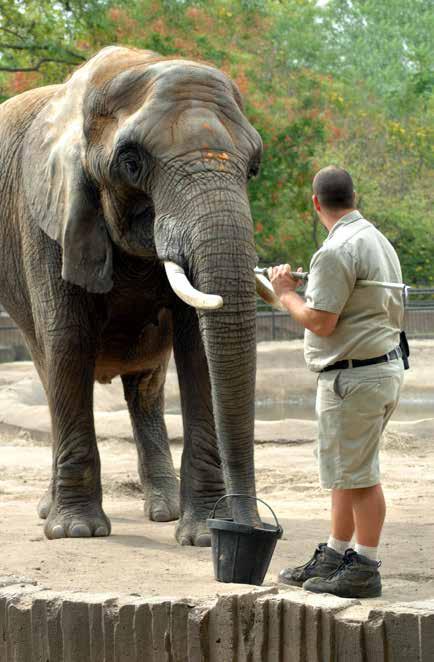

“If the results are good, we hope to invite further animals for an adventure with hemp”
Cannabinol is often the result of THC. After exposure to oxygen, UV light, or heat, THC can break down into CBN, which is less psychoactive. There is debate over the legality of CBN as a controlled or uncontrolled substance. Emerging research out of the US appears to show exciting results of CBN in cases of insomnia.
Certificate of Analysis. This is a document certified by an independent laboratory which depicts the cannabinoid profile of a CBD product. All CBD products on sale should have an easy to locate COA on their website.
The proportion or amount of a substance, in this case CBD, that reaches circulation in the body’s bloodstream and has an active effect. Some products claim to have a higher bioavailability than others.
A naturally occurring chemical found in cannabis plants. There are more than 100 confirmed cannabinoids identified by scientists so far, with CBD and THC the most widely recognised.
Cannabidiol – this major cannabinoid is known for its anti-inflammatory properties and plays a role in working with the endocannabinoid system.
Cannabidiolic acid is another compound produced by the cannabis plant. It is abundantly present in live hemp plants. CBDa is the acid form of CBD, it is decarboxylated as heat expedites the conversion of CBDa into CBD.
Cannabigerol
The Endocannabinoid System works with CBD to help the body find homeostasis. The ECS consists of a chain of two types of receptors; CB1 found in the brain and many peripheral tissues while CB2 is primarily found in immune cells.
The ECS has been shown to play a role in mood, memory, appetite, pain and fertility.
This is said to happen when a group of cannabinoids are found together, enhancing their efficacy and absorption by acting in synergy with other compounds of the cannabis plant. Full spectrum and broad spectrum CBD extracts give the average end user the best possibility of experiencing the entourage effect. Medical cannabis patients who take a prescribed whole plant cannabisbased medicine may benefit from this effect. The term was coined
A form of cannabis plant, hemp is cultivated to contain very low THC levels, making it the perfect source of CBD. Until recent years and the rise of CBD, hemp was primarily cultivated for its fibres.
You may remember this one from biology class. Homeostasis is the ability to maintain a relatively stable internal state in the body that persists despite changes in the world outside. This is optimal functioning, when everything is working just as it should, despite external factors.
Similar to bioavailability but more appropriate for use in explaining the effectiveness of CBD-infused skincare products.
Usually used in referring to drug substances affecting the mind. THC is psychoactive.
An umbrella term for any substance which affects behaviour, mood, thoughts, or perception.
A terpene is an aromatic compound found in leafy green plants. Terpenes are organic compounds, produced by a variety of plants. Christmas trees give off a smell of pine through the terpene pinene.
Tetrahydrocannabinol – the primary psychoactive, mind altering aspect of the cannabis plant. THC is responsible for the high associated with marijuana. While some full spectrum CBD products may contain micro traces of this taboo cannabinoid,
even having trace amounts of THC in a CBD product is forbidden. Hemp plants contain significantly lower proportions of THC than marijuana plants.
The common name given to CBD oils taken under the tongue. Traditionally, in holistic medicine, a tincture is a plant extract that has been soaked in ethanol. A CBD tincture usually comes as a small glass bottle in a spray cap or with a glass dropper, known as a pipette.

This is a term you will often find on the packaging of a tincture. Stemming from the Latin for ‘under the tongue’, the word refers to the pharmacological route of administration by which the active components of a substance are delivered to the blood stream, via the thin tissue under the tongue.
This is a solvent used in the common extraction process where cultivators extract CBD from the hemp plant.
Wine makers use Supercritical CO2 extraction methods to remove the musty taste from cork, for a cork taint-free bottle of vino.

Our new extended 365CBD range of tinctures, topicals and edibles has something for everyone. Help your joints and sinews with invigorating 365CBD Thermabalm, cooling Arctic Gels, plus our deeply soothing 365CBD muscle balms and salves. Trust 365CBD tinctures, gummies, mint chewable tablets and softgels for their quality ingredients and range of amazing flavours. Visit your local health food or CBD shop to ask about 365CBD or visit us at 365-cbd.com to find out more.







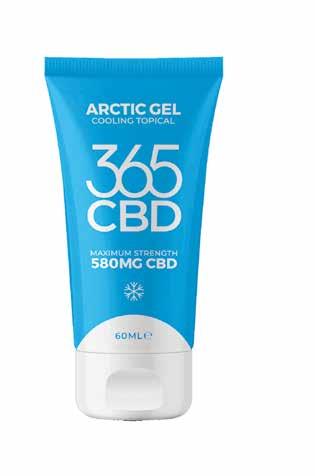

You’ll love these cool, calming flavours

It’s not just the tongue-tingling flavours that make Mellow Greens’ CBD products among the best tasting, best value on the market. They’re also infused with our pure, safe CBD extract and made in Colorado, USA to the highest regulatory standards. Now that’s cool.

Telephone: 08000 418 342 Email: info@mellowgreens.com












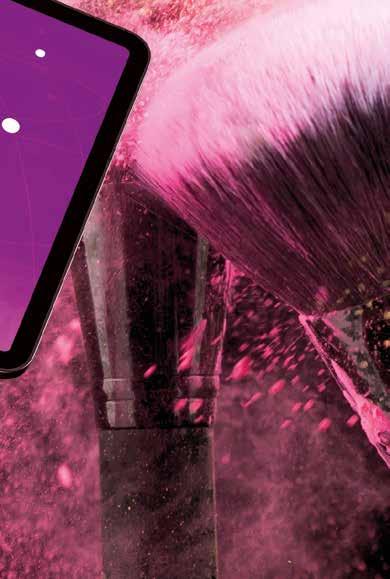





There’s so much to learn and even more conflicting information out there. Here, we bring you up to speed with the important information to help you get started on your canna quest.
Words by Gordon Stribling and Caroline BarryIt’s amazing to think that CBD was barely heard of outside of the recreational and medical cannabis worlds until a couple of years ago. But through the proliferation of products, celebrity endorsements and incredibly moving testimonies, what was once considered the inferior cousin of THC is now the undisputed king of canna.
With all that progress, and even more conflicting information out there to learn. And as your essential guide to CBD, The CANNAVIST is here to help.
While humans are believed to have been using cannabis for thousands of years, CBD itself was first isolated in 1942 by American chemist Roger Adams. This occurred two years after British chemist Robert S. Khan identified its cousin, CBN.
Adams’ research also led to the discovery of CBN derivative, THC.

Hemp and marijuana are two distinct varieties of cannabis, both of which contain CBD. One of the ways they differ is their THC content.
Marijuana contains high levels of the psychotropic compound that is known to create the ‘high’ effect. European hemp plants are bred to contain large concentrations of CBD and only trace amounts of THC.

CBD is extracted from the leaves, flowers and stalk of the cannabis plant using solvent or heat extraction methods.
In solvent extraction, solvents such as CO₂, kerosene or ethanol are run through the plant. In heat extraction, steam is used to extract the oil gently from the plant.
CBD isolate is just that – an isolated version of CBD without any other cannabinoids or terpenes.
If a CBD product is labelled ‘full spectrum’ it should contain quantities of the hundreds of cannabinoids and terpenes found in the plant it was extracted from, including traces of THC.
Broad spectrum is essentially full spectrum without the THC. This makes it particularly popular with athletes and others who are drug screened.
Contrary to the hype, CBD is not a magic pill, nor are you likely to notice its effects straight away. CBD works by interacting with the CB1 and CB2 receptors in the body’s endocannabinoid system. CB1 receptors can moderate processes in the brain like mood and pain perception while CB2 receptors can help moderate immune responses, such as arthritis and allergies.
Finding the right dose involves a little research depending on your needs. It also involves trial and error. A good rule of thumb is to ‘start low, go slow’. This is also a cost-effective way to find the right dose for you. The UK’s Food Standards Agency recommends healthy adults should not exceed 70mg of CBD a day.

CBD comes in many different forms and no one is ‘better’ than another. How you should take CBD largely depends on what you use it for.
Vaping and tinctures provide the fastest onset, which make them ideal for responding to issues such as pain as they arise. Edibles take longer to kick in but the effects last longer, so they may be more suited for sleep, for example.


The CBD for pets market is huge in the US and we are increasingly seeing products marketed for pets in the UK, too. However, these products are illegal here.
THC can be poisonous to cats and dogs too, so if a pet product contains even the tiniest amount, it could put your pet at risk.

While CBD is legal in the UK and Ireland, you may find yourself talking to customs if you fly to Russia, Slovakia or Denmark. If you are flying to the US, it is also worth noting that while it is legal in most states, the TSA may confiscate already open bottles as another liquid with a stronger THC content may have been substituted.
Be sure to check official government guidance before travelling abroad with CBD.
It’s always a good idea to talk to your doctor before trying any new supplement and CBD is no different. This is especially important if you are already on some form of medication.
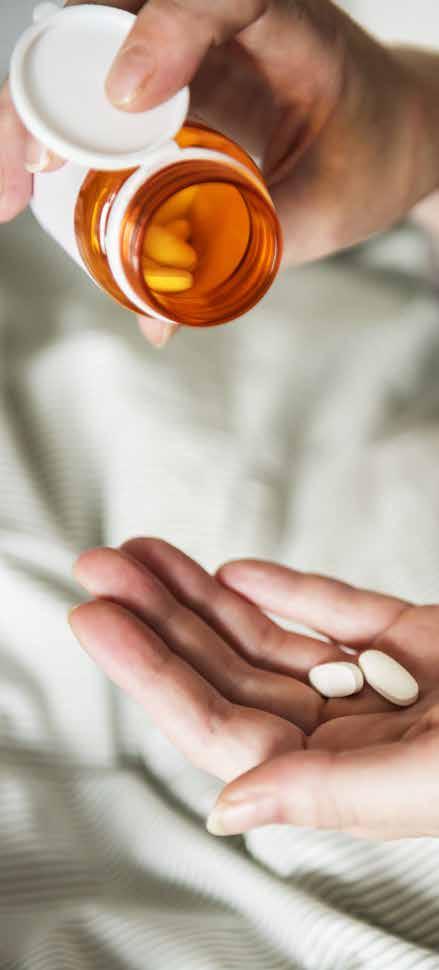
Some drugs such as steroids, antihistamines, HIV antivirals or benzodiazepines may have negative reactions when combined with CBD.
There are so many CBD products out there, but which companies can you trust? Most reputable CBD companies provide independent Certificates of Analysis (COAs) which show which cannabinoids, and what quantities of said cannabinoids and what other chemicals their products contain.
Be sure to check that a lab report is legitimate by searching on the lab’s website.

Products like tinctures, gummies and drinks will require a valid novel foods application to be sold legally in the UK from next year. We don’t yet know how and when the rules will be enforced, though it’s likely that many products will eventually be pulled from shelves altogether.
Keep an eye on our social media for updates.
@cannavistmag thecannavistmag




If you’re new to CBD, or you’re curious about what it may help with, you’re probably wondering ‘why do people use it?’ The CANNAVIST asked expert
Dr P Balu, Consultant Psychiatrist and Scientific Advisor at CBD brand Cannaray, to talk us through this plant extract’s various benefits.
CBD has surged in popularity since the pandemic infiltrated life as we knew it. Experts are wondering if our mental health and stress brought on by lockdown might be a factor?
A government survey by the Office for National Statistics found that over four in five people – 84% – have experienced worry about the effect the virus is having on their life, while 53% said it has affected their wellbeing.
Almost two thirds of British adults –62% – suffered with mental health battles in mid-March, around the time that the nationwide lockdown was enforced.
Being separated from friends and family as well as coping with the uncertainty of the weeks and months ahead were key stress causing factors, according to the Mental Health Foundation.
The latest poll by the Foundation, conducted at the end of June, asked 4,294 adults how they were feeling. Anxiety rates seem to be stabilising at 49% compared to the above mentioned 62% in March.
“Levels of anxiety and worry about the pandemic have fallen across the population, from 62% of UK
adults surveyed at the beginning of lockdown to 49% of those responding to the most recent survey,” a statement from the Foundation said.
“What our research shows is that even as lockdown is easing, millions are still struggling,” said Dr Antonis Kousoulis, Director at the Mental Health Foundation.
“There has been up to a 50% increase in sales of CBD products and supplements during the pandemic. Most people are increasingly turning to more natural health and wellness solutions to keep themselves well and prevent any complications. Patients are increasingly looking for natural remedies to manage common conditions such as anxiety, insomnia, as well as other mental and physical health conditions.
Q. Do you think lockdown has been good for us as human beings in a way we didn’t think possible?
Dr P Balu, Consultant Psychiatrist and Scientific Advisor at CBD brand Cannaray says emerging from lockdown may cause some to experience anxiety as we get used to mixing with others again after a time of isolation.

Lockdown prevented people from socialising and meeting their extended families, but there have been some positive things like developing a sense of community and slowing the pace of life. Some people have used this time to bond with their immediate family and explore their immediate surroundings. It has also allowed some to develop more resilience to adapt to adverse conditions.
For some of us who are uncomfortable in our own company
and people who use distraction as a coping mechanism, the lockdown period has been challenging. Social relationships that are usually maintained through periods of interaction and separation (children attending school and adults going to work) exist in close, long-term proximity during lockdown which can cause more stress.
Q. Mental health help groups are concerned about stress, worry and anxiety levels. What advice can you share for those wanting to lead a better balanced life post-pandemic?
Getting back to a social routine after a period of isolation in lockdown can provoke a sense of anxiety in some people and this feeling combined with the reality of an uncertain future world can be disabling and distressing for many.
Socialising at a pace that is comfortable and more of a focus on self-care are the important first steps.


Visualise a more manageable future scenario, having a routine, choose a pace that is comfortable allowing permission to be scared and little worried are some of the tips I would suggest. The “new normal” is unknown and uncertain and it is important to embrace it with a sense of togetherness.
Body and mind care is extremely important, staying connected to friends and family to get a more balanced perspective helps to minimise catastrophising anxiety. Don’t hesitate to seek professional help when appropriate.
Q. What is your advice for those who may want to try CBD for sleep?
Anxiety and pain are some of the most common reasons for insomnia which can be helped by CBD. Small doses of CBD during the day improves alertness, reduces anxiety and avoids daytime sleepiness which can lead to increased productivity during the day and better sleep at night. Use CBD in small doses and slowly increase the dose depending on response. Some people do experience drowsiness and can use CBD just before bedtime. It is important to customise CBD use and seek professional help if necessary.
What’s that smell? Did you know that the unique smell of cannabis hides a powerful secret?
Words by Gordon StriblingIf you ask the average person what comes to mind when they think of cannabis, there’s a good chance they’ll mention the distinctive smell. Love it or loathe it, the plant has a pungent reputation.
But believe it or not, there is no one ‘cannabis smell’. And this huge variation in odours and flavours is down to terpenes.
The cannabis plant contains more than 100 of these aromatic oils which collectively create flavours such as pine, citrus and mint.
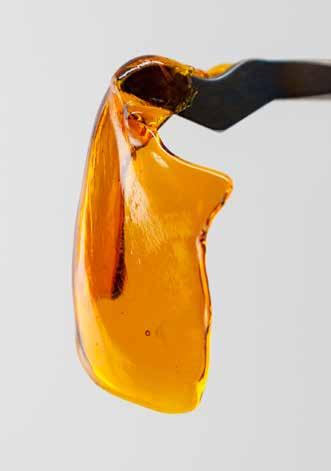
Terpenes are of course not unique to the cannabis plant. Lemons, chamomile, conifers, even some insects... terpenes can be found all over the place.
Terpenes can also affect animal behaviour as we see throughout the natural world.
The terpenes in a flower can lure bees to spread pollen while others help ward off predators.
Some may also have an effect on humans.
Limonene is one of the most well-studied terpenes found in the cannabis plant, along with pinene, myrcene and caryophyllene.
A 2019 study published in the Annals of Human Biology found that inhalation of limonene odour lowered heart rate in humans, suggesting its potential in reducing anxiety.
It seems that, much like cannabinoids like CBD, terpenes may provide certain health benefits

Cannabis is a lot more than the sum of its parts.
Many proponents believe that the combination of cannabinoids and terpenes provides greater health benefits than CBD alone, although much of the evidence so far is anecdotal.
An Associate Professor of Psychiatry and Behavioural Sciences at Johns Hopkins University is set to investigate this in a clinical setting. Ryan Vandrey, PhD has obtained a grant from the National Institutes of Health to conduct three clinical trials exploring how cannabinoids interact with terpenes.
The first trial will see 20 adults visit a research unit on multiple occasions where they will vape limonene, THC, a combination of the two or a placebo.
James Jordan Barrett is ‘Head Tailor’ and Tailored Wellbeing. The company produces e-liquids and tinctures infused with terpenes, including limonene, valencene and beta-caryophyllene.
He tells The CANNAVIST:
“Terpenes are what give plants, flowers and trees their different smells, so if you’ve ever caught a whiff of the sweet floral aroma of lavender, or would recognise the invigorating scent of citrus fruits, you’ve smelled terpenes.
“Terpenes do more than provide fragrance though, they offer a whole host of benefits with different terpenes possessing properties capable of treating pain and inflammation, to promoting sleep and relaxation, relieving anxiety and depression, and even fighting fungal and bacterial infections.
In the same way that aromatherapy works, the scent of certain terpenes has also been associated with a boost in emotional wellbeing. In CBD products containing terpenes, the cannabinoids and terpenes work synergistically. This interaction amplifies the effects of each compound in maintaining balance in the body’s endocannabinoid system, an internal system which works to keep the body in a state of homeostasis, this is known as the entourage effect.



























































































CBD often comes up when sleep troubles are the topic of conversation. We asked clinical neuroscientist Dr Elisabeth Philipps if this cannabinoid really holds the key to a good night’s sleep.
Winter is coming and with it the days are getting shorter and the nights are drawing in. This can impact our energy levels and with the clocks changing, our sleep patterns are often disrupted.
What can we do to help regulate our body clocks and enjoy good sleep and energy through the winter months?
As a clinical neuroscientist, I recommend several things to help with sleep; using light boxes to regulate sleep hormones; switching your phone off an hour before bed; and stop drinking caffeinated drinks after midday. There’s also a lot of buzz around the hemp product cannabidiol helping sleep, but does the hype really stack up?
A good night’s sleep is as important for our health as nutrition and exercise. But it’s not just the quantity of sleep we get on a nightly basis that’s important; it’s also the quality. If you wake feeling refreshed and ready to go within 10-15 minutes (without the use of caffeine) then this is a good indication you’ve had the right quality (and quantity) of sleep. However, for many people this isn’t the case but simply reaching for sleeping medication or alcohol is not a long-term solution.
CBD works within the endocannabinoid system, which is spread throughout the body. CB1 receptors are particularly concentrated in the brain, including the centres responsible for sleep regulation, mood and pain perception. CBD from the hemp plant raises natural levels of our body’s own endocannabinoids (mainly anandamide) and this helps to regulate sleep patterns, reduce anxiety, as well as reduce inflammation and associated pain; all factors that can keep us awake and disrupt our sleep.
A 2019 study showed that 67% of patients taking 25mg CBD capsules after dinner improved their sleep within the first month. A very small-scale study also showed that sleep was improved in people with Parkinson’s disease, where deep sleep phases are often disrupted.
The exact mechanisms are still being investigated but importantly, CBD does not act as a sedative and does not alter healthy sleep patterns, which is the problem with alcohol and sleep medications.
While we shouldn’t get carried away and presume that CBD is the magic bullet for all of our sleep problems, the research is beginning to suggest that CBD and other phytocannabinoids and nutrients in the hemp plant in general have a lot to offer. Yes, large-scale trials with hundreds of people are needed to better understand the exact mechanisms and benefits. But from my own personal use and clinical experience, adding a CBD product such as oil or capsules from a reputable brand into your bedtime routine will help to improve sleep quality and energy levels throughout the day.
Dr Elisabeth Philipps is a clinical neuroscientist and runs a health consultancy specialising in the nutritional neurology, the endocannabinoid system and phytocannabininoids including CBD. She regularly presents at conferences and events, and provides expert opinion for the national press, specialist healthcare publications and health companies.
You can contact Elisabeth via social media: instagram@drelisabethphilipps / Linked In - Dr Elisabeth Philipps.











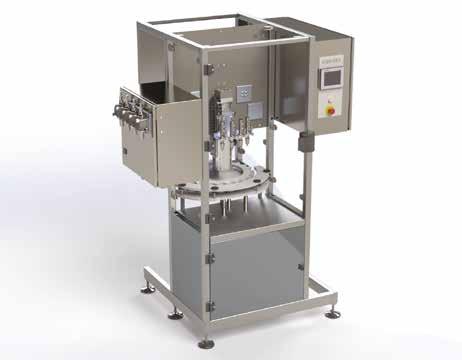























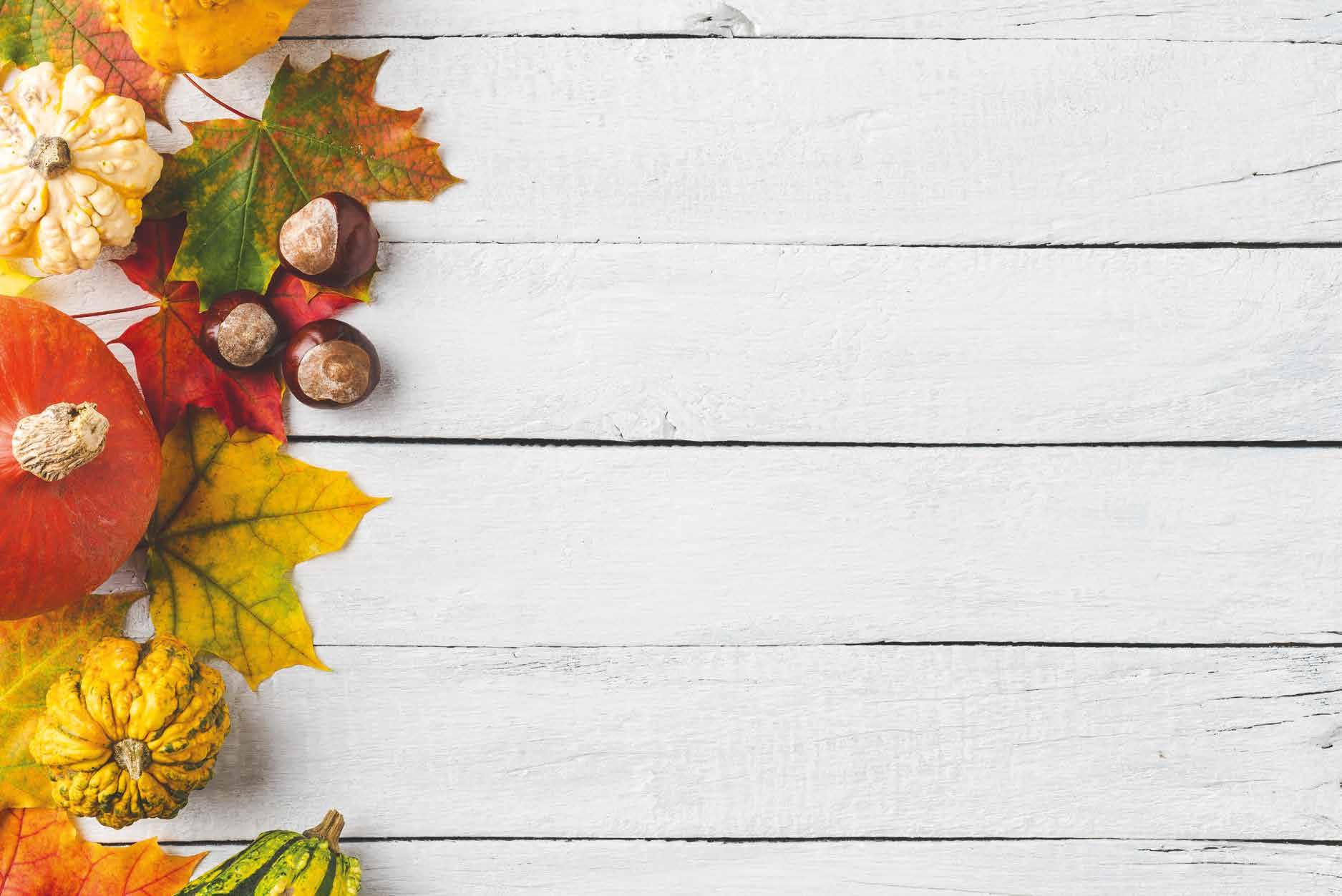







In this issue, expert Dr Parveen Bhatarah of the Association for the Cannabinoid Industry and Centre for Medicinal Cannabis breaks down the science on CBD as a future potential lifestyle aid where sleep disorders and mental health intertwine.


With thanks to the following education partners:

The oldest known written record on cannabis use comes from the Chinese Emperor Shen Nung in 2727 BC. The Ancient Greeks and Romans were also familiar with cannabis, while in the Middle East, use spread throughout the Islamic empire to North Africa.
In 1545, cannabis spread to the western hemisphere where the Spanish imported it to Chile for use as fibre. In North America, cannabis, in the form of hemp, was grown on many plantations for use in rope, clothing and paper.
CBD is now considered a ‘Novel Food’ by regulators. While many CBD products remain on the market, they have not been authorised by the authorities. CBD was placed on what is known as the Novel Foods Catalogue in January 2019, and this means that the ingredient requires pre-market authorisation.
We now know the endocannabinoid system is involved in a wide variety of processes, including pain, memory, mood, appetite, stress, sleep, metabolism, immune function and reproductive function . Endocannabinoids are arguably one of the most widespread and versatile signalling molecules known to man.
CBD stimulates the endocannabinoid system; it helps to promote homeostasis in the body. Homeostasis is any self-regulating process of maintaining an internal balance in an ever-changing external environment. Recent research has highlighted the complexity of the endocannabinoid system and suggests it is involved in managing various homeostatic processes. What’s unique about CBD, unlike its counterpart Tetrahydrocannabinol (THC), is how it interacts with the Endocannabinoid System. Although claims of any health or medical nature are not permitted to be made about CBD, recent research highlights the benefits of using the cannabinoid. The Cannabis sativa plant has two known components: cannabidiol (CBD) and tetrahydrocannabinol (THC). The latter gives users a ‘high’ due to its psychoactive properties. Unlike THC, cannabidiol is not psychoactive. Instead, users prefer using CBD because of the different health benefits such as:
· Reduction of pain and inflammation caused by arthritis
· The possible shrinkage of cancerous tumours
· A reduction in cancer-related pain
· The prevention of migraines and headaches
· Relief from chronic pain
Although research is only starting to rise, the results to date show a promising future for other health issues such as, according to the New England Journal of Medicine, epilepsy and possibly, helping a patient sleep better.

published in Springer Nature concluded that CBD intake might help treat the disorder, as well as daytime sleepiness.
There are several reasons why people have a hard time sleeping. It may be due to mental issues such as depression, anxiety, post-traumatic stress disorder, or certain medicines. Or it could be continuous intake of caffeinated drinks or an outside factor such as noise.
In some cases, episodes of insomnia may be due to anxiety. Although CBD research still has a long way to go, the evidence to date suggests that it can help treat anxiety, which contributes to sleeplessness. A study conducted by Scott Shannon, MD et al. involved 72 patients, with 47 subjects reporting with anxiety while the remaining 25 said they experienced a difficult time sleeping. The results showed that a 25mg CBD pill ingested in the first month significantly helped anxiety scores.
79.2% of all the participants said that CBD resulted in lower levels of anxiety; and 66.7% of all the participants said that CBD gave them a better sleep experience. Another factor that can contribute to sleeplessness is pain, in any form. A study conducted by Frontiers in Pharmacology reported that CBD helps to decrease pain, which ultimately reduces the discomfort felt when sleeping.
In another study conducted in 2014 by researchers from University of São Paulo, Brazil, the subjects had Parkinson’s Disease, which involved a disorder in the rapid eye movement (REM) during sleep. The patients had REM sleep behaviour disorder (RBD) wherein they act out in response to their dreams and have a hard time sleeping. With CBD use, the symptoms dramatically improved. In line with the study conducted with RBD, further research
Recent findings support the hypothesis that cannabinoid CB1 receptor blockade might be associated with anti-depressant and anti-stress effects. A novel potential anti-depressant drug class based on this mechanism is supported by the neuroanatomical localization of CB1 receptors and signal transduction pathways that are involved in emotional responses, together with the anti-depressant-like neurochemical and behavioural effects induced by CB1 receptor antagonists. Selective CB1 receptor antagonists are in development for the treatment of obesity and tobacco smoking and could be tested for anti-depressant efficacy because recent results of clinical studies suggest that they would also treat comorbid symptoms of depression such as cognitive deficiencies, weight gain, impulsivity and dependence disorders. CB1 receptor antagonism might constitute an integrated pharmacotherapeutic approach that impacts the affective, cognitive, appetitive and motivational neuronal networks involved in mood disorders.
Ongoing CBD research shows that CBD has great future. There is definitely a lot more research and education required but it is intriguing to see people are interested to try the product even though they might be confused and not sure where to get reliable information. from. The Association for the Cannabinoid Industry is trying to get the clarity for UK.
About Parveen Bhatarah, PhD
Lead at the Centre for Medicinal Cannabis and Director of the Regulatory & Compliance Unit at the Association for the Cannabinoid Industry, Dr Parveen completed her PhD in organic chemistry from Imperial College London. She is a fellow of the Royal Society of Chemistry. She has held various directorship roles in the generic and herbal pharmaceutical industry with over 20 years of expertise in bulk drug substance and product development including clinical trials, commercial launches, technology transfers and manufacture for ANDA & MA submissions. She has developed several innovative technologies in the pharmaceutical field which is clear from her patents. She has worked closely with various international health authorities on numerous commercial generic pharmaceutical and herbal pharmaceutical product launches and submissions. Most recently, in the cannabis space she was instrumental in the THC project for seed-to-capsule development, passing pre-approval inspection by US-FDA.





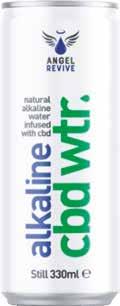









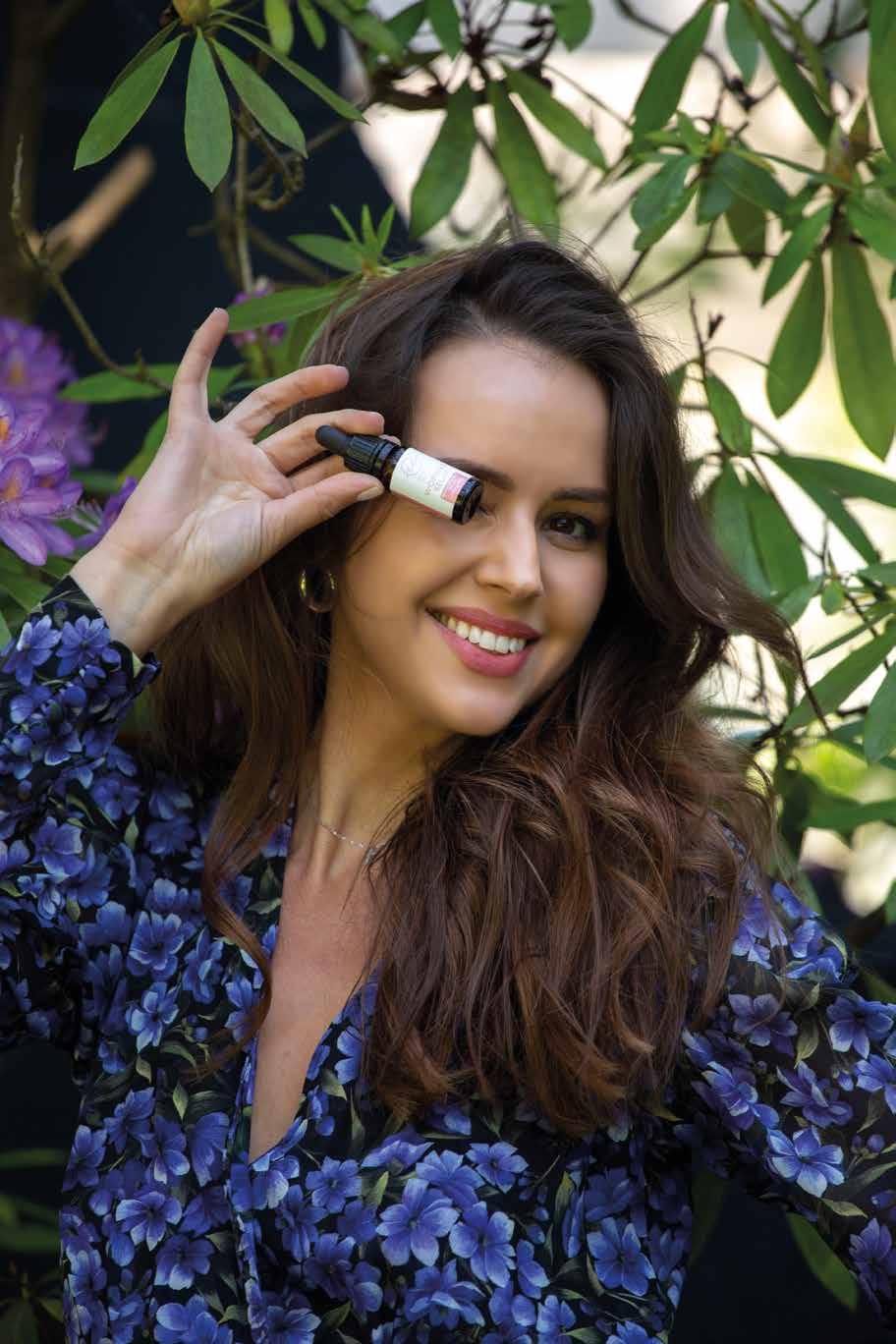 Words by Caroline Barry
Words by Caroline Barry
This year has presented what were once thought of as unimaginable circumstances. For many a budding entrepreneur, Covid has made launching a new business even more challenging. Journalist Caroline Barry spoke to former Miss Sweden Camilla Hansson about her personal discovery of CBD as she celebrates the launch of her brand, Camilla Organics.
“I’ve tried a lot of things like acupuncture, herbal medicine and I didn’t find anything that helped.”
Endometriosis is a condition where cells which are usually found in the lining of the womb are found elsewhere in the body. These cells build up and break down, but the blood has no way of escaping causing heavy, painful periods.
Endometriosis UK estimates that 1 in 10 women suffer from the condition. There is currently no cure and limited treatment options. Camilla turned to CBD for help managing her symptoms. “CBD saved my life because you can’t live your life fully when you feel fear every month because you know you are going to be in pain. I was so scared all the time waiting for my period. It was constantly on my mind that I was going to be in pain and I tried a lot of things.”
Cstage in 2014. Next on her list of accomplishments is something very close to her heart, a passionfilled CBD range for women.
When we speak, Camilla is in her native Sweden during the Europewide heatwave we experienced in August. She tells me how growing up, modelling was something she always had her heart set on.
“It was a childhood dream of mine to go and compete in Miss Universe. I have pictures of myself aged five years old playing dress up with a paper crown on my head. I wanted to be a model, but I got rejected from all the agencies in London. I felt you only live once so I entered a competition and won it.”
“My interest in nutrition started when I was modelling because you have to think a bit more about what you eat as your job is to look healthy. I started to become really interested in nutrition, holistic health and natural medicine so I decided to go back to school in London for two years.”
“I’ve always been a big advocate of natural health. I haven’t taken medicine for about a decade as it worked for me right away.
I was suffering from really debilitating menstrual cramps where I remember going to the emergency room on several occasions as I was lying on the floor screaming.
“I was looking to get into the natural medicine and nutrition business because it's my passion. I felt this calling because I was really suffering and CBD was the only thing that gave me relief. I wanted to create a specific product to support women.”
She teamed up with a developer to work on the product. “We did a particular formula and I teamed up with a CBD developer who happened to be a herbalist too.
“The formula contains 15% broad spectrum as I thought it was very important to have the product be that strength so it would be effective then we put women’s herbs in there like dong quai [female ginseng] which is helpful for cramps.”

The feedback Camilla Organics received from other women who have been battling endometriosis like Camilla herself was immediate.

“I gave it to 100 women who suffered from menstrual cramps. The feedback was incredible as about 80% of women said it worked for them.”
Setting up a business during a pandemic has not been easy but suspicion and skepticism of CBD have made things more difficult.
“It’s hard to compare because the business didn’t exist before lockdown so I can’t compare how it would have been before. We are a digital business and we sell online so could still operate. Setting up a business is a challenge on its own but having a CBD one is a whole other challenge. Early on, our merchant account got closed down because they were investigating it. It’s still a little bit controversial.”
Camilla adds that while this is not ideal, she was lucky it happened early on. “In a way, I was happy that it happened early on when sales were not huge. It was quite challenging but getting the company off the ground was the hardest bit.”
Now that the coronavirus pandemic is under better control, Camilla is turning her attention to education and growing her brand.
CBD saved my life because you can’t live your life fully when you feel fear every month because you know you are going to be in pain.
“ “
“We only launched four months ago but during this time it was about building the infrastructure and the brand from packaging or shipping to the website. Now I feel like we have everything in place so it's about getting the word out about the company. We also want to educate women about CBD and what it can do for them while trying to build a global wellness brand.”
Plastic pollution is a huge problem causing irreversible damage to our lakes, seas and wildlife with approximately eight million pieces of plastic entering our oceans daily.


As the CBD and legal cannabis sector grows, the demand for packaging increases meaning that for such a natural product, it has an unnatural effect on the environment. There are some who are trying to change how we deal with this problem from offering reclaimed ocean plastic solutions to hemp plastic alternatives.
Sana Packaging offers a range of options for the CBD and cannabis industry from vape cases to preroll tubes. Alongside their range of hemp plastic, they also offer a range of recycled plastic made from plastic found in the sea.
James Eichner, co-founder and CSO of Sana packaging started the company after witnessing the problem of plastic waste within the industry. “We saw some pretty bad, negative problems caused by the industry. Some on the cultivation side, but we saw there was a lot
being done to address those problems. Another big gap we saw was all the packaging waste being created so we started trying to solve that one problem. We wanted to make more sustainable cannabis packaging and make it more circular.”
He adds, “We started with plantbased plastic but then partnered with OceanWorks, which is where our reclaimed ocean plastic comes from. We realised we could have a big impact by using that material.”
OceanWorks is a global marketplace dealing with reclaimed plastic. Plastic is sourced from every major geographical location with a particular focus on South East Asia which is where 60% of the world’s plastic comes from.


Despite having spent time exposed to the elements, the plastic that Sana packaging uses is pure material that has been cleaned, sanitised and prepared to go back into the system. There are seven types of plastic


As the plastic problem grows, particularly in our oceans, we meet a new wave of organisations fighting the tide.
Words by Caroline Barry
which determine if an item can be recycled or produces hazardous chemicals making it unsafe to reuse. Sana packaging uses plastic type two which is safe.
James adds, “What we’re using is a pure high-density polyethylene (HDPE) which is a number two plastic meaning it’s food grade. This is huge because it means it can go back into the recycling scheme. The specific type of HDPE we are using is being collected in Haiti as most plastic there is ocean bound given the nature of the country.”
While the plastic can be dyed any particular colour, Sana packaging aims to keep the plastic as colour free as possible so it can have another life after the cannabis industry.
“We offer our ocean plastic products primarily just in white. For some our products, we offer in black and white but the main for really trying to stick to the white colour is that it has the most value on the secondary market because a white plastic can be dyed any colour. If we got it and dyed it a neon orange then it reduces the value when it goes back on the market.”
It’s not just ocean plastic offering cannabis companies a more natural alternative but hemp can also be made into plastic as it is a great source of cellulose. This accounts for 65-70% of the plant in comparison to wood which only has 40%. Hemp plastic has been used in construction, fashion and design.
Sam Whitten is the Managing Director of Hemp Eyewear, a company based in Edinburgh which makes designer sunglasses using hemp instead of traditional plastics.

Sam says he was inspired to start the company after reading about the ‘Great Pacific Plastic Patch’.
“I discovered the great Pacific plastic garbage patch online which is 12 times the size of the UK. This led me to research sustainable materials and industrial hemp was hands down the most renewable, eco-friendly and diverse materials on earth. I then developed a solid hemp technology which could replace plastic in some applications. After researching the eyewear market I saw wood and bamboo glasses but not hemp so I decided to create the world’s first hemp sunglasses.”
Sam sources his hemp from France but says there are few limitations to the material.
“Our hemp comes from organic sources in France. It keeps the supply chain short and we know that it’s the highest quality fibre we can get. In general hemp is very versatile and allows us to create a wide variety of different products. Hemp is a natural material so sometimes there are variations from batch to batch. We try to make our material very dense so it remains strong over time. Some batches don’t pass quality control like any manufacturing process and I think we have more variation because of the organic nature of the material.”
Scientists have found micro plastics embedded deep in the Arctic ice.
In 1950, the world’s population (2.5 billion) produced 1.5 million tons of plastic. Compared to 7 billion people in 2016 which produced 320+ million tons. This figure is set to double by 2034.

Plastic makes up 60 to 90% of all marine debris studied
Approximately 5,000 items of marine plastic pollution have been found per mile of beach in the UK
100,000 marine mammals and turtles are killed by marine plastic pollution annually.



Microdosing psychedelics has become a huge underground trend in recent years. But does taking a very small dose of CBD offer any therapeutic value? We get the opinion of leading cannabis expert, Professor Mike Barnes.

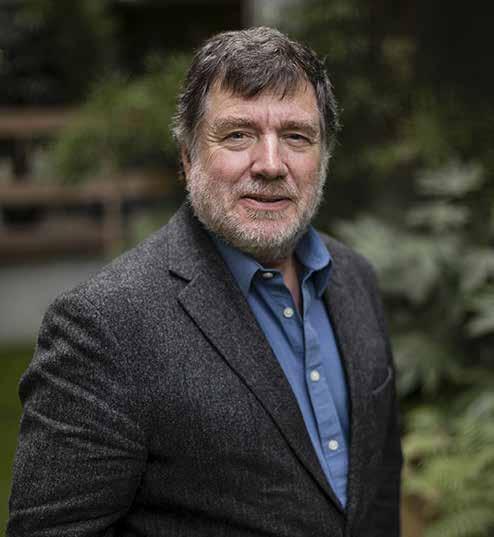
Cannabidiol, cannabigerol, topicals, terpenes – the legal cannabis landscape is awash with baffling lingo. To the speculative outsider, it may seem that a cannabis encyclopaedia and biochemistry degree are required before you can even begin to scratch the surface of CBD.
One often misunderstood word to have entered the cannabis lexicon in recent years is ‘microdosing.’
The term was popularised by online ‘psychonauts’ and Silicon Valley tech bros in the late 2010s. Proponents say that by taking very small doses of psychedelic drugs such as magic mushrooms and LSD in a clinical environment, users can experience improved mood and creativity and reduced anxiety without any of the ‘trippy’ effects the drugs are known for.
Well, it doesn’t, not exactly.
CBD does not produce a psychotropic effect (it doesn’t get you high), so you can’t really ‘hack’ CBD in the same way you might with a powerful psychedelic.

However, there is value in the start low, go slow approach.
Professor Mike Barnes is a consultant neurologist and chair of the Maple Tree medical cannabis consultancy, the Medical Cannabis Clinics and the Medical Cannabis Clinicians Society.
He says: “Microdosing is a funny term because it implies that it’s a different way of dosing somehow. It’s not, it’s just that some people react slightly differently to it. Some people seem to need a low dose for pain for example. “I’ve seen people who have managed their pain quite well on 10-20mg of CBD a day, and others are going to be using 200mg a day. They appear to be the same sort of build.
So a lot of it is very individual. I think it’s just a highly variable entity.”
around about 12 hours, give or take, and that varies hugely. So basically, it’s logical to take it at least twice a day. Some would say three times a day if you’re taking it for pain, for example. Probably three times a day gives you a better, more even spread

“Firstly, it can depend on metabolism. Some people are slow metabolisers, so they get rid of CBD more slowly so need a lower dose and it also depends a little bit on body weight and obviously method of delivery. There are a lot of variables.
“If you start at a low dose, let’s say 10mg and then increase it by 10mg a week or 10mg twice a week. Therefore, over three-four weeks you’ll get to what is the average medicinal dose, which is between 60 and 100mg.
taken
What do the experts say?
If the dose varies so much, how do you know where to start?
Is there a benefit to splitting one larger dose into ‘microdoses’ across the day?
“The half-life which is the time
for half of the CBD to disappear is
“Microdosing is a funny term because it implies that it’s a different way of dosing somehow”
Ahead of her new book launching in November, we speak to Buzzfeed’s Lara Parker about CBD, medical cannabis and the creative process from journalist to author. Words by Caroline Barry
Lara Parker has written extensively about pain both as a journalist and an author. Her book, Vagina Problems, is due for UK release in November. After first experiencing symptoms as a teenager, she was diagnosed later with endometriosis, vaginismus, a painful bladder condition and potential adenomyosis which have all contributed to chronic pain.

The Los Angeles based author turned to CBD after a partner gave her cannabis to help with her endometriosis pain.
“I found medical cannabis by accident. I was on my period, stuck on the couch, unable to move,” she says. “My boyfriend at the time was smoking cannabis. He said I should try it because it might help my pain. I was desperate and would’ve tried anything at that point. But the way I immediately felt after my first inhale was just heaven. I don’t know how to describe it sometimes. It was like my body relaxed for the first time in four years.”
Endometriosis and adenomyosis are painful conditions that affect one in ten women in the UK. With adenomyosis, the cells that line the womb are found in the muscle wall instead and with endometriosis, the cell tissue that lines the uterus is found elsewhere in the body. The body cannot break this down and the
blood cannot escape causing very painful periods.
After discovering that medical cannabis eased the symptoms of both conditions, Lara turned to CBD for further help. “I realised how great I felt with THC at the time, but didn’t know if I would be able to work while using THC, so it felt natural to move some of my attention and focus over to CBD because of the fact that it doesn’t possess the psychoactive properties. Some of the cannabis balms and rubs that I used already had a 1:1 THC to CBD ratio, so I thought, ‘Why don’t I get some more CBD products and see how it goes?’”
She quickly discovered that CBD helped too.
“CBD has helped my endometriosis pain the most by helping with my nausea, swelling and bloating around eating. I historically have struggled so much to eat and feel hungry because of the IBS-like symptoms that are so often associated with endometriosis. “I discovered that after taking 2550mg of CBD oil in capsule form that I would feel hungry. It was such
a foreign feeling to me at the time without being completely stoned out of my gourd. After that, I really started to lean into CBD and taking several capsules a day.”
Laura adds that she is surprised by how much CBD helped her manage her day-to-day. “I think it continues to surprise me just how much it helps me in so many aspects of my life. It doesn’t just help with pain, it helps my mood. It gives me an appetite. It has made me be able to enjoy meals again. It has given me my laugh back. It’s really given me my life back in so many ways.”
As a journalist for Buzzfeed and a blogger, Lara is used to writing about taboo topics such as painful sex or vaginal discomfort. She draws attention to the painful conditions that women live with daily and are often unable to get relief from. Writing a book was the natural next step. The book charts the beginning of her diagnosis journey as a teenager to the discovery of alternative treatments.
“I wanted a book to exist that I wished I had when I first began experiencing pain. I didn’t want to read about what I was doing wrong, or what diet I should be following, or how to be positive about the shit hand I was dealt. I just wanted permission to feel whatever I was feeling. So, I wrote a book in the hopes that it would do just that for others like me.”
Although she stresses that writing the book was not easy. “Writing a book was one of the hardest things I’ve ever done. I honestly don’t know how I finished it. I think about trying to do it now and it feels impossible. But at the same time, part of it felt so easy. I think the words had been in me for so long.”
Next, California living Lara is turning her attention to other alternative therapies, some of which are not yet possible on this side of the world. “I’ll be experimenting with microdosing ketamine as a certified treatment for my anxiety and depression. I had surgery this year to try and get my physical health somewhat under control, and now it’s time to get that mental health. I’m excited to see what other possibilities are out there in the ‘alternative medicine’ world.”
‘Vagina Problems: Endometriosis, Painful Sex, and Other Taboo Topics’ penned by BuzzFeed Deputy Director Lara Parker. With unflinching honesty, Parker shares her day-to-day challenges of living, working, and loving with chronic pain caused by endometriosis in this raw, darkly humorous, and hopeful memoir.

“It helps me in so many aspects of my life. Like it doesn’t just help with pain, it has given me my laugh back. It’s really given me my life back in so many ways.”

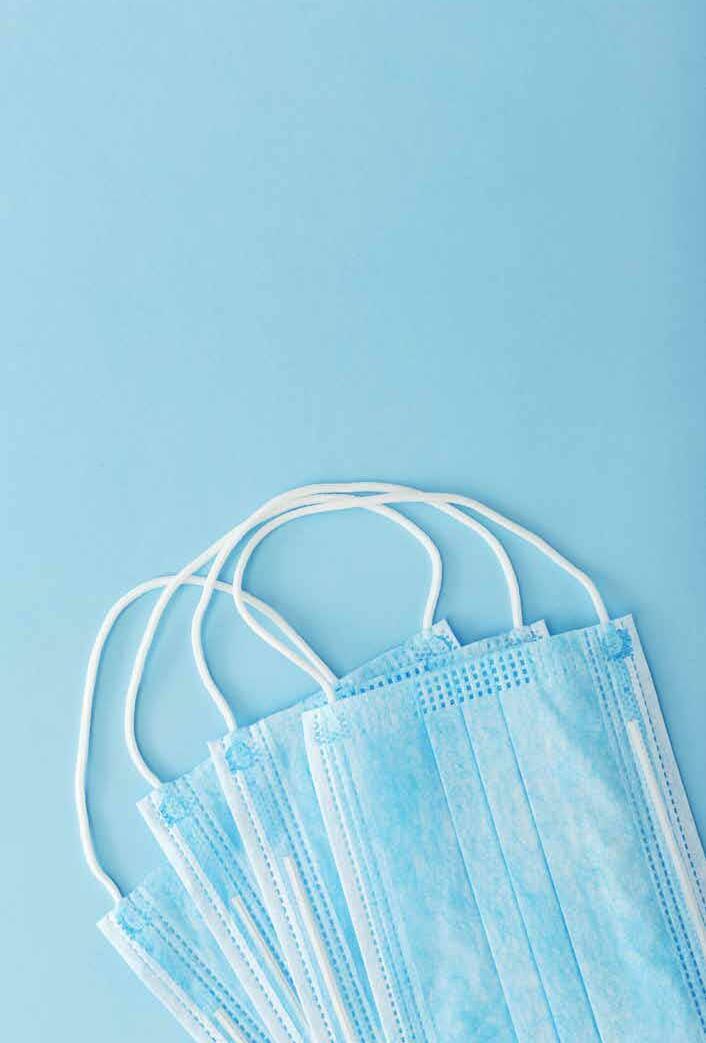
CBD companies have landed in hot water for making Covid-19 medical claims. But alongside the potentially dangerous hype lies at least three ongoing studies investigating pharmaceutical grade cannabis extracts and terpenes as allies in the fight against the virus.
Words by Gordon StriblingResearch is very much in its infancy and it’s important to state that no CBD or cannabis product has yet been approved to treat or cure Covid-19. Any companies even eluding to such benefits can face severe penalties from the MHRA in the UK or FDA in the US.
Here, we shed a light on three promising investigative studies published so far this year.
This study attracted significant attention when it was published in April. The original paper has been viewed hundreds of thousands of times, with subsequent news stories racking up thousands more shares and hits.
Researchers at the University of Lethbridge in Calgary, Canada studied more than 400 cannabis strains and determined that at least 12 may help prevent coronavirus infection.
The researchers said that some of the strains reduced the number of virus receptors in 3D models, therefore reducing the chance of an individual contracting the virus.
Dr Igor Kovalchuk, CEO of Pathway Rx and co-author of the study, said: “Angiotensin-converting enzyme 2 (ACE2) has been generally accepted by the scientific community as a receptor required for the entry of SARS-CoV-2 into human cells.
“Our initial findings warrant further investigation but it’s possible that medical cannabis products could become a sage adjunct therapy for the treatment of Covid-19.
“We were totally stunned at first, and then we were really happy. “Cannabis can reduce the virus’ entry points to the body by up to 70%.”
Kovalchuk said that researchers would likely focus further studies on high-CBD strains moving forward due to the compound’s anti-inflammatory properties and non-psychotropic effect. While this research has attracted a lot of media attention, it does have some significant limitations.
It was a non-peer reviewed study using artificial mouth, airway and intestinal tissue.
The team has been unable to secure funding for clinical trials on animal subjects.
Researchers at the Medical Cannabis Research and Innovation Center at Haifa’s Rambam Health Care Campus in Israel are investigating whether cannabis could help prevent serious inflammation from Covid-19 infection.
One of the main effects of the virus is the release of proteins called cytokines, which are released en masse in a ‘cytokine storm’ in an attempt to fight the infection. In some patients, this can lead to hyperinflammation which can seriously harm or kill.
aim of the study is

‘Israeli Researchers Say Medical Cannabis Could Effectively Treat Some Covid-19 Symptoms’
The
to build
Pharmaceutical companies from around the world are scrambling to find potential new treatments and cures for the coronavirus that continues to ravage the planet. And it will come as no surprise to the CBD community that cannabis is increasingly being explored.
on existing research to find out which receptors cytokines bond to and the extent to which specific cannabinoids and reduce the inflammation.
Dr. Igal Louria-Hayon, study lead and scientific director of The Medical Cannabis Research and Innovation Center, said: “Based on our experimental data, we hypothesise that cannabis may affect the cytokine storm which occurs during Covid-19 disease.
“Our goal is to apply cannabis treatment to downregulate the inflammation storm before the patients develop severe lung inflammation.”
The team is looking to discover which combination of the hundreds of cannabinoids in the cannabis plant target and treat the inflammation.
Meanwhile, inflammation itself presents a lot of variables.
Dr Louria-Hayon said: “Not every cannabis strain that showed antiinflammatory properties, can also treat Covid-19 disease.
“Our challenge and goal is to identify the specific strain or cannabinoids combination, which can treat the specific Covid-19 related pattern of inflammation.”
As with the Canadian study, clinical trials are yet to be completed.

2X Better for Covid-19 Inflammation than Corticosteroid’
Dexamethasone is used to treat inflammation in a range of medical conditions. In June, the World Health Organization (WHO) welcomed preliminary clinical research from the UK which found that treatment with Dexamethasone reduced mortality by a third for patients on ventilators and a fifth for those only requiring oxygen.
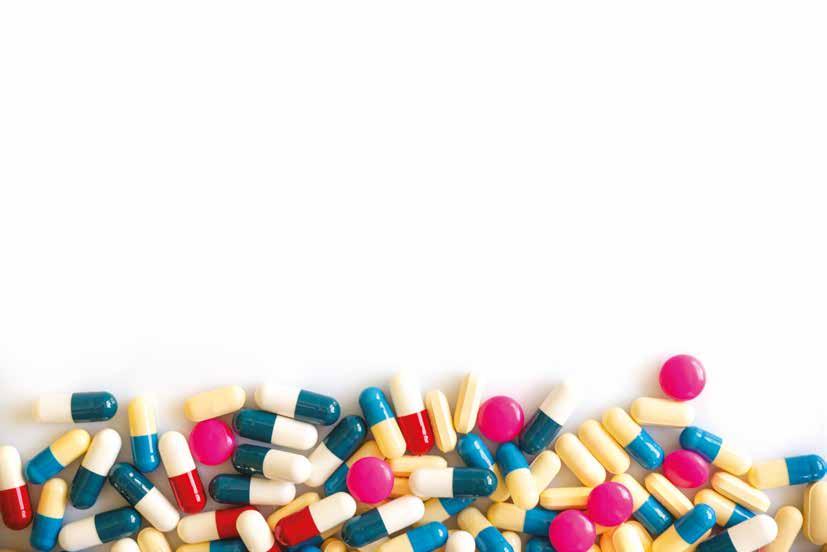
Now, a study by Israeli research and development companies Eybna and Cannasoul suggests that the
combination of CBD and terpenes may be twice as effective as Dexamethasone in combatting the cytokine storm.
The researchers used a solution called NT-VRL™ containing 30 terpenes with potential antiinflammatory benefits. They then tested the formulation on a ‘Cytokine Storm Assay’ made by Cannasoul to see how it impacted upon the cytokine response seen in severe Covid-19 cases.
They also tested CBD with NT-VRL™, CBD on its own and Dexamethasone using the assay.
The CBD and the NT-VRL™ terpene formulation inhibited around 90% of the cytokines compared to 30% in the promising Covid-19 treatment.
Eybna co-founder and CEO Nadav Eyal said: “The preliminary results were highly positive [as they are] demonstrating significant antiinflammatory activity of terpenes and breaking the perception that terpenes are just flavourings and fragrances compounds with a placebo effect.”
This is an ongoing in-vitro study that had not been peer-reviewed. No human trials have been conducted.
The CBD industry would not be where is it today were it not for continued innovation. The game-changing Cannadips CBD pouch offers a revolutionary spin on an established product.
 Words by Gordon Stribling
Words by Gordon Stribling
through the thin layer of skin. Cannadips recommends that users wait for 30-45 minutes for the 10mg of CBD to be released and take effect, with the accompanying Natural Mint, Tangy Citrus and American Spice flavours lasting up to two hours.

As the pouches are water soluble, they are rapidly absorbed in saliva which further boosts the absorption of the CBD. This unique route of administration makes Cannadips up to four times more bioavailable than CBD oils and tinctures.
The pouch is a particularly convenient alternative for consumers who are attracted to the flavours and rapid onset that vaping offers but are uncomfortable with the concept or who would prefer something more discreet. While the pouch is familiar to consumers in parts of Europe and certain areas of the US, some others may have preconceptions about a product they associate with tobacco use.
However, Patty believes that first-time users will be won over by taking it slow and familiarising themselves with the experience of using a pouch.
She said: “It would be recommended to start with one pouch to get used to the format. Once they’re more comfortable with that, they can increase the pouch usage according to recommended use.”
As the CBD marketplace has become increasingly crowded, transparency and the potency of the product are sure fire ways to stand out from the pack. With that in mind, the company tests each batch of Cannadips prior to shipping to confirm the potency of the hemp extract and the cannabinoid profile, with the corresponding lab report posted online.

With peace of mind assured, what can we expect from Cannadips for the rest of the year?
Patty said: “We are constantly working on enhancements and added value for Cannadips Europe.
“Currently, we are working on different strengths and new flavours to diversify offerings for customers.”
“Many of our customers are existing Snus users who are also CBD users, as well as CBD users who prefer a method that’s sublingual and not inhaled.”






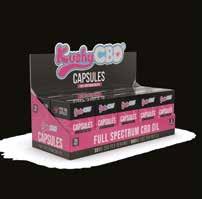
From a police officer who changed her mind about cannabis when it came to her own chronic pain to a parishioner informing a church minister about CBD and the latest on the Irish medical cannabis pilot scheme MCAP. The following pages present medical cannabis stories where the clinic meets real life.

The Refractory Epilepsy Specialist Clinical Advisory Service (RESCAS) was created this year to support specialist paediatricians in considering to prescribe medical cannabis and other new treatments in severe cases of incurable epilepsy.
This new service has been commissioned by NHS England and is supported by NHS Scotland, NHS Wales and Health and Social Care Northern Ireland.
Hosted by Great Ormond Street Hospital (GOSH), RESCAS is a UK-wide clinical service designed to provide a forum for the discussion of difficult epilepsy cases that have presented diagnostic and/or management difficulties and have proven refractory to treatment.
Any regional paediatric neurology centre in the UK can now refer a case to RESCAS for discussion at a fortnightly virtual multidisciplinary team meeting.
Each meeting has input from paediatric neurologists from centres around the country, including GOSH, with additional input from neurophysiologists, geneticists, radiologists, pharmacy and clinical nurse specialists where appropriate.
The NHS says written advice based on the clinical findings at these meetings will be provided to the referring clinician within five working days of the meeting. After the board of specialists has convened, a recommendation is then passed to the patient’s own doctor.
Medical cannabis, deep brain stimulation and Vagus nerve stimulation are just some of the treatments looked at for refractory epilepsy under RESCAS.

Announcing the service in February, Chief Medical Officer and Medical Director for NHS Wales, Dr Frank Atherton, wrote to colleagues nationwide to notify them of the launch. In a letter, he penned:
“In order to support paediatric neurologists who are considering prescribing cannabis-based medicinal products for paediatric patients with severe treatment-resistant epilepsy, Great Ormond Street Hospital (GOSH) is hosting a new UK-wide clinical service. The Refractory Epilepsy Specialist Clinical Advisory Service (RESCAS) provides a forum for the discussion of difficult epilepsy cases that have presented diagnostic and/or management difficulties and have proven refractory to treatment.”


Liz McLucas was diagnosed with myalgic encephalomyelitis (ME) at 40, only to be diagnosed with fibromyalgia at 50. From her home in Comber, County Down, Liz tells The CANNAVIST how discovering CBD oil and ‘giving it a go’ brought much needed positive change to her life. Words by Róisín Delaney

The anecdotal evidence surrounding CBD in recent years speaks volumes. Millions of people across the UK & Ireland now buy CBD oil on a regular basis, eight million in the UK alone this year in fact. And it’s stories like that of Liz’s which are fuelling the curiosities of millions more.
“I was diagnosed with ME when I was 40, then fibro when I was 50,” Liz begins. “It all seems to happen in 10-year gaps for me! I was diagnosed with fibromyalgia and chronic fatigue, chronic pain … And at that stage I was on Tramadol and co-codamol and everything like that…
“I had to give up my work as an advanced specialist classroom assistant. I worked with kids who had special skills, learning difficulties or behavioural problems. I loved it!”
About four years ago, Liz heard about CBD while at an event, where she met Charlotte Caldwell, the mother of Billy Caldwell and tireless medical cannabis campaigner. It was that night when Liz decided she would give CBD a go, after speaking with Charlotte.
“I had heard about CBD oil, but I wasn’t quite sure. There wasn’t as much about
it then. It was still a bit stigmatised. My sons and all said to me, ‘Would you not try a wee bit of cannabis?’ I said ‘No, no, no. I can’t take that!’
“There’s a programme called the Nolan Show, we went along one night, and Charlotte Caldwell was there. I asked her about CBD, would it be any good for me. It’s all very controversial online. You get one place telling you one thing and another place telling you the other… I really took the advice of Charlotte. She explained to me how it works. She was able to tell me how long it would take to notice changes.
“I got onto it and I found my mood was a lot better. I was able to do more. It gave me back my quality of life again. I didn’t have to take any more
opioids; I was able to come off all of that gradually and I even took on voluntary work.”
Almost five years later, Liz takes a 2000mg CBD oil which she buys every month from her local shop, Nature’s Alternative, CBD Specialists in Newtownards.
One of the things people frequently ask about CBD is, how do I know when it’s started to work? Liz says it ‘doesn’t happen overnight.’
“It took about six weeks,” she recalls, from the time she started taking CBD until she noticed that she was having more good days. She started taking a few drops of a 500mg oil in the mornings and has gradually progressed her strength and dose over four years. Liz credits the shop
owner Curtis for his knowledge and friendly advice.
“Everybody knows I take CBD. I’ve never hidden it. I even had a church minister ring and ask me about it. I’m a very open person. The way I look at it, it gave me back my life. Now I’m helping people to do pain management courses. I tell people that I take it, I’m not advising that they take it but I say, this is what it has done for me.”
Now able to take on volunteer work and have a better quality of life, Liz says her prescribed medication which she is no longer taking left her in a very dark place.

“With the Tramadol, I just felt I was in a very black hole. I didn’t even want to be here anymore. It was really, really scary. It took a few months with my doctor’s
help to come off it, taking a very low dose of CBD at the same time. I was on 150mg of Tramadol twice a day, so I had to come off it very gradually. I couldn’t have told you my name or who I was or what I was doing. I was living on Cloud Cuckoo. I couldn’t have done this interview; I couldn’t have held this conversation.”
CBD can potentially interact in the body with medication. As recommended, Liz asked her doctor about CBD oil before she started taking it, considering the various opioids she had been put on first.
“Her words were, ‘I can’t tell you to take it. But I’m not telling you not to take it’.
”Every doctor and everyone I’ve seen since then over the past four of five years, they all know that I take CBD. I’ve been very upfront about it. None of them have said anything to me about taking it.”
Remember to consult your doctor before taking CBD, especially if you are on prescribed medicine. The Food Standards Agency does not recommend CBD for vulnerable groups and advises that healthy adults should not consume more than 70mg of the legal cannabis extract per day. The official FSA advice on CBD states: “As a precaution, we do not recommend CBD for people in vulnerable groups, unless under medical direction. These include pregnant and breastfeeding women, people taking any medication. If you have any health concerns, please contact a healthcare professional.”
A former police officer left with life changing injuries changed her mind about CBD and cannabis while on a trip to Spain, as she learns to cope with chronic pain. Words by Róisín
DelaneyLast year, the National Institute for Health and Care Excellence (NICE) listed three medical grounds for which they acknowledged medical cannabis may be useful in treating. These are intractable nausea and vomiting in chemotherapy patients, severe treatment resistant epilepsy and spasticity as a result of multiple sclerosis (MS). Chronic pain got a mention in the guidelines, however the experts at the healthcare advisory board said neither medical cannabis nor CBD, should not be issued to a patient for pain management, unless they are enrolled in a clinical trial, citing a lack of evidence. This national guidance for healthcare professionals across the UK sent shockwaves through a number of patient groups, from those with fibromyalgia to neuropathy, osteoarthritis and more.
The CANNAVIST met with Christina Dowds of Carrickfergus, County Antrim, a former PSNI Officer who was savagely injured on the job. Christina speaks of her life changing injuries resulting in chronic pain and how she changed her mind about cannabis as a result.

“I had a full jaw replacement. I’m open from a big reverse question mark right here,” Christina says while turning her head to the side so that I can see the scar from her surgery on my computer screen. I’m aghast to think a clobber to the face did this on a day where Christina went to work as normal.
“I got that done in 2016. I had three operations from 2008 to 2009. And it was after that operation in 2009 that I was left with Complex Regional Pain Syndrome,” she explains. There are two known types of CRPS. “Mine is actually type two, where you can have it after an injury or surgery,” the wife and mum adds. “But obviously not everybody gets it. It is unfortunate that I’m in constant pain 24/7.”
Christina has come to terms with the fact that she may be in pain as a result of the attack which took place in Belfast for the rest of her days. How has her discovery of and openness towards CBD helped her manage that pain?
“I was being pumped with pregabalins.” The term refers to any medication used to treat epilepsy, neuropathic
pain, fibromyalgia, restless leg syndrome and generalized anxiety disorder.
“Lyrica, palexia… I was given a ketamine infusion. I was left on morphine. I was prescribed methadone, which I refused to take. It was as if they said, ‘we don’t know how to fix you.’ Now, I will say that I have had some fantastic doctors. My pain management specialist was fabulous. But I wasn’t sleeping. I wasn’t really functioning properly, obviously, because if you don’t get a good night’s sleep…”
Since 2016, Christina has had to commute from her home in Northern Ireland to Birmingham, Manchester and Liverpool off and on for treatment, something she didn’t do by choice with a young son at home. She went one step further while on holiday in Spain, putting everything she had been taught about cannabis to one side as she joined a cannabis social club. These are privately run non-profit organisations in which cannabis is collectively grown and distributed to registered members only. The Spanish authorities say that with no profit motive, “the clubs offer a more cautious, public healthcentred alternative to large-scale retail cannabis markets dominated by commercial enterprises.”
Christina explains how she was wary of taking CBD at first, largely due to her prior days of knowing cannabis only as a street drug.
“I joined a cannabis club while I was in Spain and one of the fellows there was very, very knowledgeable. He gave me a couple of capsules and he said, take one of those, go into bed and you’ll sleep and of course, I thought, hello, police officer! Are you serious? The capsules sat in the apartment for a couple of days. I just thought, ‘what if I died?’ Not realising that all the medication that they had put me on, that I could have died from that. I’ve never heard of anybody dying from cannabis.”
“I had researched it before we went and I wanted to try it. But obviously, when I had it in my hand I was there, seeing it and thinking, ‘Oh, I can’t do this’. But one night I said to my husband, ‘I’m going to take one of these things’ and I got my first night’s sleep in nine years.”
“I thought ‘oh my goodness’ This is like, wow… Where have you been all my life? You know, so he then made me up a tincture, so that I could take small amounts during the day.”
Coming home to Northern Ireland, Christina made it her mission to access this newfound aid which to her, and her family’s amazement, ‘brought her pain down to a tolerable level’.
Christina battled to access Nabilone, a synthetic cannabis medicine which mimics the effects of THC. But while her doctor in Liverpool gave her the prescription, her doctor at home refused to allow her access, “more or less because it didn’t fit the NICE guidelines,” she explains.
“I had been in contact with Charlotte Caldwell and she actually put me on to the Sapphire Clinic.” The Sapphire Medical Clinics are situated on London’s Harley Street, so Christina’s consultations are now virtual.
Of her medical cannabis specialist at The Sapphire Clinics, Christina says, “he is very good to us, he does specialise in my condition, so he knows about it. Because, quite frankly, especially over the lockdown and before I just felt lost.


“Literally on my own, because doctor surgeries aren’t open, I mean, to go in and see a doctor, my doctor [in Northern Ireland], although he sympathises. I’m educating him.”
CRPS is a chronic pain condition, meaning a pain that exists for longer than six months. In most cases, it affects one limb usually after an injury. It is believed to be caused by damage to, or malfunction of, the peripheral and central nervous systems. In the US, the National Institute of Neurological Disorders and Stroke (NINDS) is currently investigating “new approaches to treat CRPS and to intervene more aggressively to limit the symptoms and disability associated with the syndrome”. Meanwhile CRPS sufferers may experience the worst pain there is, according to the McGill Pain Index. This scale rates the levels of pain felt by patients of various medical needs. Chronic pain felt by those with CRPS, like Christina, is rated as being the most painful condition, more intense than childbirth or having a finger amputated under anaesthetic. That’s according to Burning Nights CRPS, a British non-profit organisation which brings patients the latest news and advice about the condition.













CBD and medical cannabis trials are ongoing across the world. From California to Belgium, here are some of the latest developments influencing the future of cannabinoid medicine.
Words by Caroline BarryResearchers in Belgium have tested two cannabinoids, CBD and CBG, in fighting plaque in the mouth via infused mouthwash. The study revealed that both compounds could be as effective as over the counter antiseptic and disinfectant products containing Chlorhexidine. Their aim is to develop a mouthwash that doesn’t contain fluoride and alcohol. Samples were taken from 72 participating adults and bacteria was developed in the lab before being tested against five different mouthwashes, including CBD and CBG types with spearmint. The researchers explained, “Cannabinoid (CBD or CBG) infused mouthwashes together with other natural key ingredients shows promising bactericidal activity in vitro against total culturable aerobic bacterial content in dental plaque.”
Lexaria Bioscience Corporation is set to launch a clinical study to assess if using CBD formulated using patented technology could potentially reduce blood pressure. As of the time this issue went to print, this trial was in the recruitment stage seeking volunteers with prehypertension or mild hypertension.
The study will be a double-blind, placebo-controlled, cross-over pilot study in which 24 volunteers (men and women aged 45 to 70 years) will be given a 300mg dose of CBD randomly with or without the formulation enhancement in oral capsule form.
The researchers said: “The primary outcome will be automated measures of blood pressure and heart rate. Secondary outcome measures will include circulating plasma concentrations of CBD and assessment of key inflammatory markers associated with cardiovascular disease.”
A study released in June revealed that medical cannabis users may have better overall health.
Researchers from John Hopkins Medicine and the Realm of Caring Foundation in the US surveyed patients to find out if they suffer less pain, better sleep and lower anxiety levels, which the researchers say contribute to an overall better quality of life. Results from the study showed that the participating medical cannabis patients reported 8% better quality of life, 9% reduction in pain scores, and a 12% reduction in anxiety. The patients also reported using 14% fewer prescription medications, were 39% less likely to have visited an emergency room, and 46% less likely to have been admitted to a hospital in the month before being surveyed. The team stressed that while this early work indicates benefits for cannabis, more funding and clinical trials are needed.
Ryan Vandrey, Associate Professor of Psychiatry and Behavioural Sciences at the Johns Hopkins University School of Medicine, said: “It wasn’t surprising to me that people claim to feel better when using medical cannabis, but it was unexpected to see that these people utilised less health care resources.”
The San Diego Medical School in California is currently recruiting autistic children for a trial which will test the potential of CBD in reducing behavioural symptoms of the condition. This clinical trial, a randomised, double-blind crossover study, is seeking 30 participants with diagnosed cases of autism who experience severe symptoms. All those taking part will be given behavioural testing, MRI scans and electroencephalograms as part of the study.
Doris Trauner, MD, Distinguished Professor of Neurosciences and Paediatrics at UC San Diego and an Attending Paediatric Neurologist at Rady Children’s Hospital-San Diego said: “CBD may have potential for many neurological disabilities, but there is particular interest in autism because the behavioural problems can be severe and limit the child’s ability to learn and socialise.”
In the first phase of the trial, half of the participants will receive CBD and the other half a placebo in the form of oral drops. In phase two, after participants have allowed their system to ‘wash out,’ the groups will be switched with the half that originally received CBD. Investigators will be blind to which participants are receiving which treatment until testing is complete.

New research around Sickle Cell suggests that cannabis could help manage the moods of those suffering with chronic pain and mood imbalances as a result of the disease.
Researchers developed a double-blind, placebo-controlled, randomised proof of principle study which involved 23 participants.
During the trial, participants made two five-day trips to an inpatient research centre where they vaped cannabis or a placebo three times a day. Researchers monitored their pain and mood levels. Side effects were also closely monitored.
The results showed that while the vaped cannabis did not reduce the intensity of pain, it was observed that pain interfered less with mood. There were no side effects when compared with the placebo.
Dr Kalpna Gupta, Professor of Medicine at the University of California Irvine’s Center for the Study of Cannabis and colead author of the study said: “These trial results show that vaporised cannabis appears to be generally safe. They also suggest that sickle cell patients may be able to mitigate their pain with cannabis and that cannabis might help society address the public health crisis related to opioids. Of course, we still need larger studies with more participants to give us a better picture of how cannabis could benefit people with chronic pain.”
CBD may be effective in reducing ‘problematic’ cannabis consumption, according to the world’s first clinical trial of its kind. The first phase of a double-blind trial involving 48 participants tested three doses of CBD against a placebo. Those taking part had tried but had been unable to quit using cannabis on their own. They were each given 200mg, 400mg or 800mg of CBD or a placebo. The researchers then recruited another 34 participants for the second stage after the 200mg was found to be ineffective.
All participants then had to record their own cannabis consumption over the course of four weeks. At the end of the trial, participants treated with CBD reported more cannabis-free days than the placebo group and had reduced levels of THC in their samples.

As Ireland struggles to make medical cannabis access work, we speak to activist and author Vera Twomey about cannabis-based medicine in Ireland before and after the new system.
Words by Caroline BarryVera Twomey has fought a lengthy campaign to secure medical cannabis access for her daughter, Ava, who suffers from Dravet Syndrome, a rare form of epilepsy that can cause daily seizures and affects one in 20,000 to 40,000 people worldwide.
Ava’s family turned to medical cannabis after experiencing negative side effects from the pharmaceutical options she was prescribed.
She says: “It became clear very quickly that to get the prescription in Ireland for medical cannabis, it was just impossible. You were either going to do one of two things, accept that it was impossible or make it possible. Our options were very clear as we had exhausted a lot of the pharmaceutical avenues and the side effects were so negative.”
Ava’s prescription for medical cannabis was one of thirty licenses in Ireland to be granted prior to the introduction of the Medical Cannabis Access Program (MCAP) under the former Minister for Health, Simon Harris. However, the new system is showing signs of dysfunction
after a year in operation. It’s unclear as to what has caused the delay but consultants are still unable to prescribe the medication to those who need it.
Vera weighs in, “The system isn’t working and that’s pretty much it. We got cannabis under an individual license as there wasn’t any programme then. The programme came in after the huge publicity surrounding her case as there was a lot of pressure on the government from parents who were aware of the medical properties of cannabis.
“The introduction of the cannabis access programme undermined the individual licensing system. It wasn’t really a system but how they dealt with the arguments from parents and individuals who fought to get access. When they introduced the programme, the consultants ignored
the individual access programme but there were no actual products attached properly so the consultants couldn’t prescribe anything. There was nothing there to prescribe.”
The individual licensing system that was in place before the MCAP pilot scheme meant that families like Vera and Ava’s travelled to The Netherlands to bring back medical cannabis medications such as Bedrocan, as Irish pharmacies cannot dispense it.
Strangely, Bedrocan is not listed as one of the suppliers in the new MCAP scheme alongside Tilray, CannEpil and Aurora who have all met the criteria for use under the new scheme.
Travelling to The Netherlands became an issue when Covid-19 restrictions came into force. As a result, health minister Harris announced in May that families could have their medical cannabis delivered directly to their homes. To those who had travelled in the past, this was welcome news but it was also bittersweet as it was felt that the government could have done this from the start.
“We had to leave to go to Holland for the medication every 12 weeks. When they let us come home, they didn’t allow our pharmacy to dispense the medication locally which is just humiliating,” Vera says.
“It
the nature of the medication by forcing people out of the country to collect it as if it is strange or dangerous. Suddenly Covid came and there was a miracle. We could have our cannabis delivered. Not just to our pharmacy but to our backdoor just like that. I remember thinking, they’ve been able to do this the whole time, but they haven’t.”
Patients and parents are also afraid that this improvement could stop once lockdown lifts.
“The parents that are using medical cannabis are normal people like everyone else. It would be deeply humiliating to have to go back to a situation where you are travelling every 12 weeks. I’m not willing to accept a promise as it needs to be nailed down.”
Over the course of her activism, Vera has met with every health minister in Ireland, starting with Leo Varadkar when he held the position from 2014 to 2016. He went on to be Taoiseach. She also met with Simon Harris, current Taoiseach Micheál Martin and is due to meet with the new head of health Stephen Donnelly in the coming weeks. Does she believe we could see any changes to the system in the next two years?
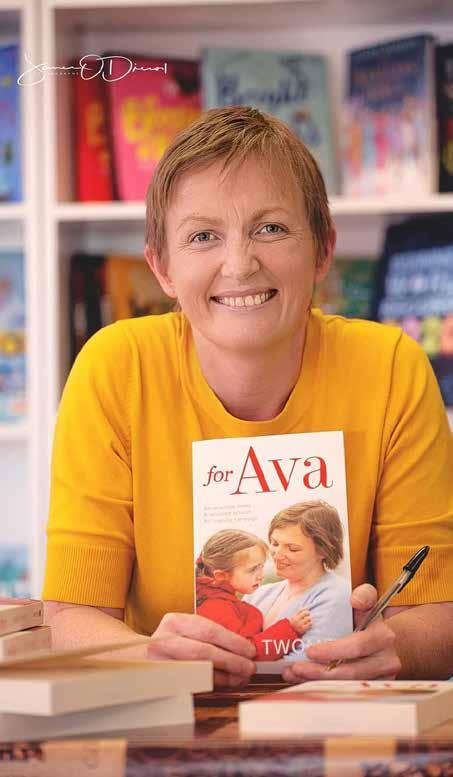
“I think he’s a thoughtful person. I would be inclined to give him a chance. I think he may be motivated to achieve as much as he can in the period of his appointment. What he is going to do, I don’t know but I’m going to meet him and I’ll do my best with him. I think their hands have to be held when it comes to cannabis as I don’t think they know what to do because it’s so new and fresh. I hope he will listen because the situation at the moment is marginally better than what it was but it’s still very worrying to me.”
The CANNAVIST reached out to the department of the new health minister for comment however no such response was received at the time of going to print.
degrades
“It was just impossible. You were either going to do one of two things, accept that it was impossible or make it possible.”
It’s been a difficult year for Irish politics. A general election saw the Fianna Fáil party enter into a coalition government with Greens and long-time rivals Fine Gael for the first time. It has also ushered in a new system of a ‘rotating leader’ and ministers who hold their positions for two instead of four years.
As we say farewell to one health minister and welcome another, it’s time to assess what this change in leadership could mean for the Irish Medical Cannabis Access Programme (MCAP) just one year into the five-year pilot scheme. The programme was introduced in 2019 by the then health minister Simon Harris to facilitate access to cannabis-based products for a list of medical uses. This includes spasticity associated with multiple sclerosis, intractable nausea and vomiting associated with chemotherapy and severe, treatment resistant epilepsy. However, it’s been criticised for the lack of access for those in chronic pain.
Now the system faces criticism as some say it appears dysfunctional after a full year of existence. A spokesperson for the programme at the Department for Health
in Dublin said that although discussions are ongoing, there have been delays in implementation.

“The Health Service (HSE) is engaging in discussions with the suppliers of these products, in line with the Health (Pricing and Supply of Medical Goods) Act 2013. The programme will not become fully operational until pricing and supply matters are agreed.”
There are three products attached to the programme – Aurora High CBD Oil Drops, CannaEpil and Tilray Oral Solution THC:10:CBD10. In the first stages of the process, potential suppliers applied to have products assessed for suitability.
Strangely, the previous medical cannabis product available in Ireland, Bedrocan, is not listed as being available through MCAP.
It is also stated on the government website, gov.ie, that the register for patients is not yet working. “Once the Medical Cannabis Access Programme commences the HSE will establish and maintain a
Register to facilitate the enrolment and recording of certain data including patient identifiers, prescribers enrolled in the Programme, as well as prescribed / supplied medical cannabis products. Please note: The MCAP register is not currently operational.”
While it is early days for the new health minister, in what is a challenging time for any health executive, an old interview with Irish magazine Hotpress resurfaced in recent weeks regarding his views on cannabis. “I’d like to find a way to decriminalise small quantities of weed. If a grown adult wants to grow a herb and then smoke it, and there are no negative consequences for other people, then they should be allowed to do that,” he told a reporter.
As Ireland and most of Europe head into a COVID-19 induced recession, it’s worth noting that medical cannabis could also provide valuable jobs and income. Research conducted for The European Cannabis Report reveals a fully mature Irish market could be worth €2.3 billion annually.
“The programme will not become fully operational until pricing and supply matters are agreed.”
It’s over a year since Ireland gave the OK for medical cannabis access via a pilot scheme. The CANNAVIST asks if the newly appointed health minister will bring changes to access.


Countless people across the UK continue to suffer from conditions that could be alleviated with medical cannabis. Now, 26-year-old Kayleigh Compston has become one of the first people to receive the game-changing medicine in a landmark project that could finally see more clinical needs being met.
Words by Gordon StriblingUp to 1.4 million UK adults selfmedicate with cannabis, according to a YouGov survey published in November 2019, a year after medical cannabis was legalised. Very little has changed since then.
Only two cannabis medicines can be prescribed on the NHS. Patients with conditions that cannot be medicated with Epidyolex or Sativex are out of luck. They either have to pay exorbitant private fees or roll the dice on the black market.
Kayleigh Compston, 26, is all too familiar with the challenge of having to obtain her medicine through illegal channels.

“I used illicit cannabis for four years to self-medicate but you don’t know what you’re getting,” she says.
“I live on an island [Shetland] so sometimes there wouldn’t be any around with drug dogs stopping it.
“It varied week by week depending on what was available.
“It’s a high-THC product that I need and some of them were not as strong. You don’t know what it is or the strength of it when you’re buying it.”
Kayleigh has fibromyalgia and
functional neurological disorder (FND). While she knew that cannabis helped significantly, NHS guidelines put the remedy out of reach. Instead, doctors would prescribe powerful and addictive opioids to mask the chronic pain that affects her whole body.
“I was on morphine and gabapentin before, as well as diazepam. Strong medications that kind of zombify
you and are not very pleasant to be on at all. The doctors just upped them and upped them.
“It was not very pleasant taking them when I knew there was something out there that did make a difference.”
But now, Kayleigh became the first person in the UK to be put through the landmark Project Twenty21 [T21] registry. The project aims to build the case for wider prescribing of cannabis on the NHS for conditions including chronic pain, anxiety and PTSD.
“It’s a lot more straight forward than I thought it would be,” Kayleigh says. “The fact that it’s video consultations now, that makes it a lot easier.”
The registry is also a far less expensive route to obtaining cannabis medicine, which has made it more accessible to a far broader cross-section of people. Private patients can pay thousands a month for the cannabis flower Kayleigh is prescribed, but T21 caps the cost at £150 for 30 grams. That’s £5 per gram – half what many patients in a UK city would pay on the street – let alone someone like Kayleigh who lives on an island. Cannabis is not a one-size-fits-all medicine given the many different cannabinoids and terpenes in the
plant and the varying needs of patients. This makes it challenging to medicalise and be put through the clinical trials process.
But the private prescription process and T21 allow for prescribers to work with patients to find the right product, route of administration and CBD:THC ratio for their needs.
“A lot of people try it in their teens, but it doesn’t work because this is street cannabis you don’t know what you’re taking,” Kayleigh says.
“Like any medication, there’s actually more cannabis types than there are dog breeds. Many, many different types out there and it’s about just finding the right one like any medication.”
As well as improving access, T21 has the potential to remove some of the stigma that still surrounds
medical cannabis despite legalisation.
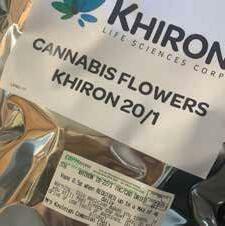
Kayleigh explains that her grandmother had not been keen on the idea of her using it illegally, especially after kayleigh was criminalised a few years or so for possession without a prescription. Now a mother of five, obtaining cannabis illegally could present a risk to the family. But now that it’s legal, Kayleigh’s grandmother a completely different perspective.
Kayleigh says: “Although the product’s not very different, I have a piece of paper so to an older generation, that does change their view a little. Now they see that it’s no different from me having morphine on a prescription.”
Partner Matt has also obtained that piece of paper, first through private prescription and now T21. Like Kayleigh, he is a huge advocate for medical cannabis on social media
after it helped him manage his MS.
“Now he doesn’t take any opioids or painkillers for his MS other than the cannabis,” Kayleigh says.
“It helps massively for him.”
To share your medical cannabis journey, visit Kayleigh’s Facebook group, Medical Cannabis Shetland.

“I was on morphine and gabapentin before, as well as diazepam. Strong medications that kind of zombify you”
ADHD can have a huge impact on the daily lives of those diagnosed with the condition. Could CBD help with controlling hyperactivity and managing symptoms?
Words by Caroline BarryAttention Deficit Hyperactivity Disorder
(ADHD) is a behavioural condition that includes symptoms such as inattentiveness, hyperactivity and impulsiveness which start in childhood and continue into the adult years.
ADHD Action estimates that 1.5 million adults in the UK have the condition but only 120,000 are formally diagnosed. Those with ADHD find that it can affect their home and work lives as well as their social interactions.
While there is no set cause of ADHD, there is also no cure other
than careful management or medication.
Medications fall into two categories: stimulants and non-stimulants. The Centers for Disease Control and Prevention (CDC) estimates that 70 to 80% of American children with ADHD see their symptoms decrease when they take stimulant medication. However, these can have negative effects such as panic attacks, palpitations, sweating, insomnia and present a cardiovascular risk.
Concerns about side effects from stimulant medications have led an increasing number of diagnosed ADHD sufferers to turn to natural alternatives, including Brendan Torpey from Maryland.
Brandon was prescribed 30mg of Adderall when he was diagnosed with ADHD and continued to take it until he went to college. He found that it severely inhibited his desire to eat and he had ‘a lot of anxiety and closeted depression’ during that time.
He said: “I started smoking cannabis in college, but I now combine it with CBD to relieve my anxiety and prevent my mind from going a million miles a minute.
“I haven’t taken my prescribed medication in over three years as using CBD in concentrated doses when I wake up helps me to be more present at work, less pessimistic and obsessive about things.
“CBD almost entirely helps me to mitigate my anxiety.”
A review by researchers at the Institute of Medical Biochemistry, University of Veterinary Medicine, Vienna in 2020 explored the reason why CBD seems to work as well as stimulant drugs in mitigating some ADHD symptoms.
The researchers concluded that CBD may protect dopaminereleasing neurons and prevent the breakdown of dopamine in the brain by indirectly regulating the

brain’s stress response. This means that CBD may increase dopamine levels over time.
Ella Jordan is a dispensary manager from Canada who takes CBD to help with her ADHD symptoms. She said: “I came across CBD as a tool to manage my other medical condition, epilepsy. I noticed immediately it had a profound effect on my ADHD.

“I struggle anxiety that comes with ADHD and CBD helps me to manage this. I have taken anti anxiety medication, but it resulted in a zombie-like effect.
“I find CBD has the same effect on my anxiety without the fogginess.” Ella finds in her role that there is a lot of confusion surrounding CBD for ADHD, with a lot of people opting for medical cannabis instead. “I find most people don’t consider CBD immediately as a treatment for ADHD. I find more people
coming in for indica-dominant THC products for the hyperactivity part of their ADHD generally.
“I have suggested CBD to many people and they always come back for more. Either a straight CBD to manage symptoms during the day, or a 1:1 for the evening.”
Studies directly on ADHD and

CBD are small compared to the amount of trials conducted on children on the autistic spectrum. A study published in Scientific Reports Journal in 2019 found that of 155 autistic children who tried CBD for six months, more than 80% of parents reported significant or moderate improvements in behaviour.

“Using CBD in concentrated doses when I wake up helps me to be more present at work and less pessimistic or obsessive about things”






Presented by this magazine, CBD LIVE made its virtual debut on the VOXPO platform July 31-August 2. With thousands of users sharing a common interest in CBD, here is a breakdown of the virtual event’s debut. And if you feel like you missed out, worry not. All of the educational content is still active on voxpo-event.com. Just register for free to learn!











CBD LIVE, presented by The CANNAVIST, made its virtual debut on the VOXPO online exhibition platform. With webinars reaching in excess of 10,000 views, we look back at the highlights from this debut, three-day event.
Len May, CBDIA board member and CEO and founder of the EndoCanna Health, gave an informative discussion about the future of CBD in wellness, detailing the effects of stress on our intake of CBD and the role our genes play in the body’s response to CBD. The certified medical cannabis specialist in Medicinal Genomics also emphasised that education will help to remove the stigma that surrounds cannabis and CBD.
Market Analyst at CBD-Intel, María Alejandra, presented a segment on market trends and country comparisons showing the percentage differences between European countries when it comes to CBD education and usage. This also included the US market for comparison.

María highlighted the consistency of oil/tincture products across Europe but showed an increase in the popularity of cannabis flowers in Italy.
In a live interview broadcast, Charlotte Caldwell said her 15-yearold son Billy’s life depends on medical cannabis.
She very poignantly said the fear of losing her son keeps her going, as she pursues the NHS in legal action to reinstate his medical cannabis prescription.

Priscilla P. Agoncillo,

& co-founder
the Original
League, spoke of the medical uses of the cannabis plant by different cultures throughout history, before speaking about the emergence of the CBD industry as we know it today. Priscilla highlighted the amazing possibilities of the CBD market and how this may develop in the next few years, from cosmetics to health. Singling out the UK, Priscilla labelled the market as up-and-coming stating that it will be worth £1 billion by 2025.
Meanwhile France showed a high curiosity of CBD vapable products while the US revealed a huge growth in the CBD for pets sector.

Billy, who is a big fan of Harry Potter according to his mum, has previously been able to get a prescription for the cannabis oil. However on two occasions his NHS prescriptions were withdrawn. Since 2016, Charlotte, who lives in Northern Ireland, has been the driving force for medical cannabis advocates across the UK and Ireland.
She and Billy gripped the nation when he made a recovery from an intense, prolonged bout of seizures after Customs & Border Officials at London Heathrow confiscated his medical cannabis oil.
The interview, led by the editor of The CANNAVIST, has amassed more than 10,300 views combined on VOXPO and ‘Keep Billy Alive’ on Facebook.
The future of hemp and CBD wellness products with the CBDIA.CBDIA president of Breeders
Medical
campaigner says she fears losing her son without his cannabis medicine.
The world’s largest virtual CBD event gets serious about business
After being eased into the day with some relaxing meditation courtesy of Tara Kearney, we moved onto our first talk of the day.
The mid-morning panel was hosted by The CANNAVIST editor, Róisín Delaney, with guest speakers Kyra Reed, founder of Women Empowered in Cannabis (WEiC) and Jessica Steinberg, co-founder of the entOURage Network and head of

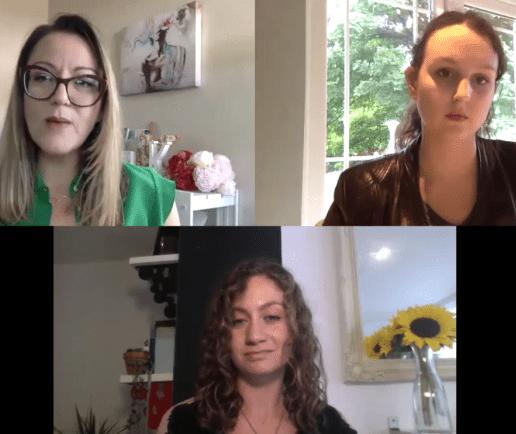
community at Ohana CBD. The discussion looked at the challenges and opportunities for women in the CBD industry on both sides of the Atlantic. All three women emphasised the value of female spaces that encourage inclusivity, with individuals working towards a collective good rather than racing to a finish line.
‘CBD in sporting circles. The injuries we can and can’t see.’
Clinical neuroscientist and nurtitional therapist Dr Elisabeth Philipps discussed the impact of physical sport on the body and brain and how this can be treated with CBD.
George Kruis is professional rugby player & cofounder of fourfivecbd.

The webinar also featured an interview with WWE champion and RVDCBD founder, Rob Van Dam.
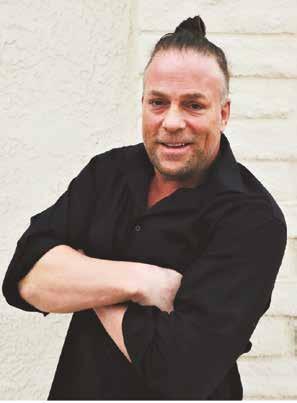
The impact women have on the legal cannabis industry and overcoming barriers to success
The loss of conferences and expos
due to COVID-19 prevention measures has not affected the sale of white label goods as much as may have been anticipated, according to companies. In fact the whole CBD sector appears to have been fairly resilient to the overall downturn brought about by the pandemic.
Even in the worst cases, COVID issues have only led to delays rather than outright cancellations of new product launches, according to Frederik Hendriksen, vice president of international sales and business development at Mile High Labs.
There has been some business lost in terms of new purchases – though Hendriksen said these were delayed rather than completely lost. Repeat purchases have continued fairly normally.
There has been more interest from companies looking for cannabinoid ingredients than those looking to launch private labels, but the business has been surprisingly resilient overall from the COVID impact, he said.
The loss of conferences has not been particularly material as the benefit of many was not well mapped out. “The biggest value is the networking,” he added. “And the results have been pretty good from the existing customer base.”
Others are unsure whether delays in white label goods will remain delays or turn into cancellations. The white label market for the UK is saturated, according to Carlo Buckley, managing director –Europe for CBDFx. As a result, it’s difficult for many to make money given typical overheads for picking and packing at such small volumes. “There’s been an explosion of small brands without scale that are going to white label suppliers,” Buckley told CBD-Intel. “[These brands] cannot benefit from some form of economics of scale or benefit from long-term supply partnerships too.”
This means that some may not be able to survive a downturn in business and delayed orders could turn to cancellations.
This delay in launching new brands that would require white label production can be seen in the US as well. Grocery and larger marketplaces are putting launches on hold, according to Larry Berg, co-founder and CEO of the CBD Marketing Hub.
CBD-Intel provides impartial, independent and premium market and regulatory analysis, legal tracking, and quantitative data for the cannabidiol (CBD) sector.
We offer a one-stop source of market and regulatory strategic data for the CBD industry. Providing all the data in one online platform reduces the amount of time and money spent monitoring the sector for multiple international markets.
Our global perspective on the international CBD sector offers you key data such as market
trends, key players, regulatory obligations and industry dynamics.
CBD-Intel’s team is made up of lawyers, economists and journalists. The team is based in London, Barcelona and New York, and enhanced by correspondents and contributors from around the world.
We also offer customised research and consultancy support, and we publish ECigIntelligence and TobaccoIntelligence for the vapour and tobaccoalternatives sectors.




 CBD CIRCUIT
SPONSORED BY
CBD CIRCUIT
SPONSORED BY
With alternative treatments and therapies such as CBD on the rise, The CANNAVIST partnered with Microdose.Buzz, the hosts of a conference series focused on the clinical use of psychedelics to see what further pathways are on the rise.
Words by Caroline BarryWith CBD now a part of everyday life for many and medical cannabis more normalised than ever before, it seems like the public has opened its mind to alternative pathways to pain management and mental health this year.
Microdose Psychedelic Insights, along with Bexson Biomedical, The Conscious Fund and Ketamine Media held a virtual conference in August to discuss just that. The Ketamine Conference: A Molecular Masterclass was held online over two days, exploring all areas of research, from the science to the psychedelic. Researchers and doctors in the US in particular are keen to ensure that where suitable, psychedelics such as ketamine can be prescribed
carefully to patients who are part of a new programme. The treatment capabilities for conditions such as Post Traumatic Stress Disorder (PTSD) and depression are currently being studied, similar to the CBD space.
In a panel discussion on The History of Ketamine, doctors Rupert McShane MD, Sandhya Prashad MD and Phil Wolfson MD discussed where ketamine treatment lies currently in both the US and UK and what issues could affect potential legalisation.

Dr Sandhya Prashad highlighted how valuable ketamine can be but said that the lack of standards could mean changes for the industry.
She said: “We have a very valuable tool here in ketamine but there aren’t
a set of standards and there is no set way of doing it.” Sound familiar? The clinical ketamine industry is almost identical to where CBD was three years ago.
“That is a liability as it leaves it open to being misused or perhaps over regulated or even losing access to it. “We don’t have anything like this in psychiatry, at least right now.”
Rupert McShane MD spoke about the UK’s reluctance to embrace esketamine which is FDA-approved as Spravato in the US.
He explained that the British healthcare advisory board NICE had recently conducted a preliminary evaluation of the cost-effectiveness of the drug and were against the idea of adopting it on the NHS. For now, he said, it’s “not looking particularly
good” for the antidepressant nasal spray.
McShane added: “The challenge really is to find a structure that is endorsed by organisations that are considered conventional. Otherwise it will become a boutique niche experience which I don’t want it to be.
“I can see a big proliferation of clinics in the US, all doing different things but we may have an opportunity in the UK for a more harmonised approach.

“But because we are not quite the land of the free in the same way, it’s going to be tough to bring it together.”
Pharmaceutical ketamine advocates are facing unease from potential patients about the safety of psychedelics. Not only that, but doctors prescribing monitored doses in controlled clinics shared concerns that growing interest could lead to people home-dosing without supervision. However, patients may struggle to get to weekly or monthly clinics.
Phil Wolfson MD warned that ketamine should not be used to treat all conditions, is not suited to all individuals and cannot be compared to the proliferation of cannabis legalisation.
He said: “I think it has broad potentiality but I don’t think you should be giving the psychedelic experience to people who don’t know what it’s all about, with minimal input or follow up. It’s a very powerful substance.”
One way in which ketamine appears to target the brain is through binding to the NMDA receptors. It increases the amount of a neurotransmitter called glutamate in the spaces between neurons. This activates the connection in the AMPA receptor. The blockage of NMDA receptors and activation of AMPA receptors helps to release other molecules that help neurons to communicate with each other. This likely affects mood disorders. However, research is still in its infancy.
The concerns of this panel of expert doctors at the recent virtual conference make it clear that the clinical ketamine community is where the medical cannabis community found itself years ago. Progress will be slow until standards, regulations and codes of conduct are put in place to help the drug become a more mainstream treatment.

The experts also highlight the need for education and development around how patients could safely administer ketamine medicine at home. But with more and more UK medical students interested in how ketamine works for depression, this will all need to be addressed, and soon.
• Ketamine is a Class B drug in the UK. It is illegal to possess, make, give to someone else or let others use in your home.
• The penalty for possession is up to five years in prison and/or an unlimited fine. Supply holds penalties of up to 14 years in prison and/or an unlimited fine.
• Ketamine first found its way onto the club and rave scene in the UK in 1992 when people took it thinking they were buying ecstasy.
• Ketamine is an anaesthetic with analgesic, stimulant and psychedelic properties. It is a ‘dissociative’ anaesthetic, which means that patients feel detached and remote from their immediate environment. Users say that under its influence they assume a different point of view, outside of body and self.
Whether online or in person, CBD and medical cannabis events are making a defiant comeback to close the year. Although some events are listed as taking place IRL (offline), this is subject to change thanks to fluctuating Covid-19 restrictions.

Who said networking needs to be boring? The CANNAVIST hosts a virtual speed networking event the first Monday of the month from 4.30pm London-time.
cannaone.com
A virtual expo for cannabis beauty companies.
September 29-30
O’Cannabiz Toronto IRL
ocannabiz.com
An international conference and expo on all things medical cannabis with speakers such as Olivia Newton John, Rachel Rapinoe and winner of Masterchef, Shaun O’Neale.
October 27-29
Answering any questions about CBD in the retail space from convenience to beauty stores.
November 3-4
GCI Europe Virtual Summit ONLINE
summit.gc-institute.org
GCI Europe aims to bring together leading, innovative organisations from research, medicine & business - to exchange ideas, partner and do business.
November 11-12
CBD
cbdexpo.net
Conference themes include legalities, compliance, regulations, investments, health, and medical research. Enjoy unique workshops on wellness and CBD culinary creations.

November 13-14 voxpo-event.com
CBD Live at VOXPO USA ONLINE
Following the success of CBD Live in July, VOXPO is back with more webinars, networking and exhibitors. November 18-20 worldcbdawards.com
World CBD Awards Paris IRL
The second World CBD Awards recognising achievement and identifying companies that strive to stand out as clean, ethical and innovative.
December 2-4
worldclassbusinessleaders.com/events
An online conference presenting a mix of case-study presentations, interactive roundtable discussions, Q&A sessions and hands-on workshops.
December 10-12

Facebook, Instagram and Google do not permit sponsored posts or online ads for any cannabis derived product, including hemp-based CBD. In order to reach the consumer, The CANNAVIST is your go-to option on both sides of The Atlantic, with both trade and consumer distribution networks in the US, UK and Ireland.
In January 2019, our magazine made history in becoming the first ever cannabis-based print publication available in the UK. Fast forward to 2020 and you can now grab the latest issue in your local corner shop or WH Smith high street retailer. No other CBD publication in our markets can provide the same coverage for your brand.

8.4 million adults in Britain say they have already bought or intend to buy CBD in 2020. Our magazine is the only accessible independent platform providing product reviews and the advice these consumers need.
Through various media and education partnerships with worldwide events and organisations like the renowned Centre for Medicinal Cannabis, our publication presents insights from the leading minds on CBD and medical cannabis.

1. When it comes to advertising your CBD brand, there aren’t as many options available as you might think.

analysts have projected that ‘alternative meat’ will become a $140 billion industry within a decade. Now, hemp has a seat at the table.
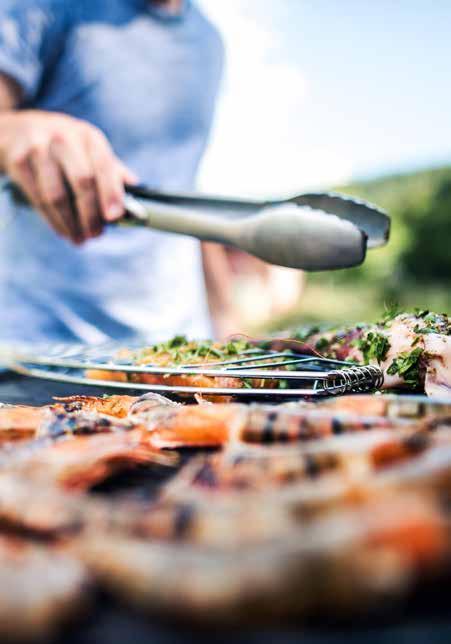 Words by Gordon Stribling
Words by Gordon Stribling
Ah, the humble beef burger. A staple of barbecues, pub lunches and chain restaurants the world over. But while the planet consumes millions of McDonald’s burgers alone each year, more and more people are waking up to the harms of meat farming, not just to the wellbeing of animals but on the planet itself.
Speaking of McDonald’s, the controversial chain is one of many big names to have introduced meat-free, vegan alternatives in recent years, along with Subway, Burger King and KFC. Now, a company in New Zealand is set to capitalise on both the ‘fake meat’ and cannabis trends with the world’s first hemp-based burger. Sustainable Foods has teamed up with medical cannabis producer Greenfern Industries on the burger which is set to be released in 2021 through the Craft Meat Co. brand. The meat has been in development for many months now and is said to be rich in protein and dietary fibre. Dan Casey of Greenfern Industries said: “We have an abundance of high quality hemp from which we obtain seed, cake and oil so we partnered with the Riddet Institute to work on background research and hemp product development.
“We spent 12 months working with Riddet Institute on the product and, after several iterations, we’ve produced some very valuable shared IP.”
The Craft Meat Co. has stressed the importance of making homegrown products that are as good for the planet as the body. The hemp selected for the recipe is grown sustainably and the plastic packaging is made with mostly recycled materials. The company said: “We work really hard to keep all of our ingredients naturally based. “We believe in creating a sustainable food source, obviously ecologically, but also in creating a viable economic proposition for NZ agriculture. “That means we are committed to migrating the source of our ingredients to NZ grown and with Greenfern Industries have taken a massive step towards that.”
In a landmark 2019 study on the impact of food on the environment, researchers at the University of Oxford concluded that avoiding meat and dairy was ‘the single biggest way’ to reduce one’s impact on the planet. Without meat and dairy consumption, global farmland use could be cut by 75% while still keeping the planet fed.
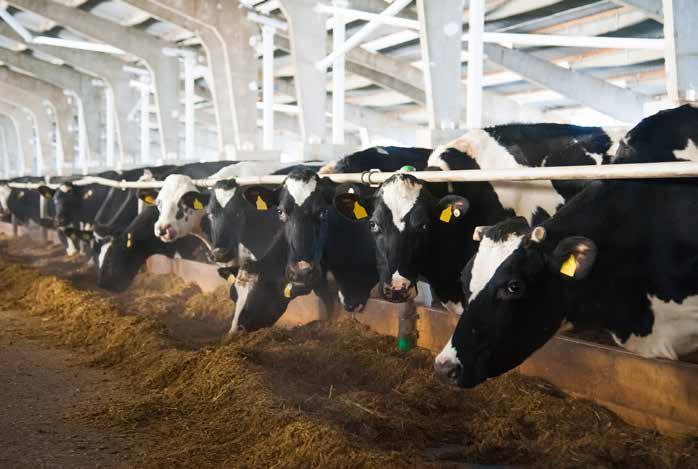

Joseph Poore, who led the research at Oxford, said: “A vegan diet is probably the single biggest way to reduce your impact on planet Earth, not just greenhouse gases, but global acidification, eutrophication, land use and water use. It is far bigger than cutting down on your flights or buying an electric car”
Sustainable Foods founders Rei and Justin Lemmens are hoping to complete trials on their products by the end of 2020 to put them in a position to launch in New Zealand in early 2021, with additional plans for export.
When the project was announced in July, they said: “From a nutritional standpoint, our products all use hemp, which is considered one of the most nutritionally complete food sources in the world, increasing the total consumable protein content in our products.”
“Our products all use hemp, which is considered one of the most nutritionally complete food sources in the world”
Move over full Monty. Cordon Bleu trained chef and CBD edibles developer Melissa J Parks cooks up a delicious & easy CBD-infused breakfast from her kitchen in Las Vegas.
In this recipe, there are a few components. We’ll be working with roasted tomatoes, leftover beans, over-easy eggs and sourdough toast. Hungry? Let’s get cooking.
• 2 large tomatoes
• Light olive oil OR vegetable oil
• Thyme: 2 fresh sprigs or ¼ teaspoon dried thyme
• Salt and pepper
Method:
Cut the tomatoes in half and place in a tightly fitting roasting pan (a tightly fitted pan will help the tomatoes keep their shape for filling).
Gently toss the tomatoes with a generous drizzle of oil, thyme, salt and pepper to taste.

Roast at 375 degrees F or 190 degrees C for 15 to 25 minutes (the length of time depends on the condition of the tomatoes. They should be soft, but NOT MUSHY. Some firmness is necessary so that it will keep its shape when de-seeded and filled with beans.)
Allow to cool to room temperature and gently scoop out the center ribs and seeds. Set the tomatoes aside.
• Use fresh or leftover breakfast beans, 100g per tomato
[Use your favourite recipe to make the beans. The goal is to bring your favourite ‘comfort food’ into the CBD realm of cooking.]
• CBD oil or tincture (Plain, unflavoured)
In medium sauce pan with a lid, add the beans and reheat to a rolling bubble.
Once the beans are hot, turn off the heat and remove the lid.
Once the beans have stopped bubbling, add your desired amount of the unflavoured CBD oil or tincture and stir to thoroughly combine (do this for about 2 minutes).
Chef Melissa says: “I prefer to maintain approximately 5mg per serving.”
Take the tomatoes, now at room temperature, and fill each one with 100g of CBD infused beans and top with butter toasted sourdough bread crumbs (if desired).
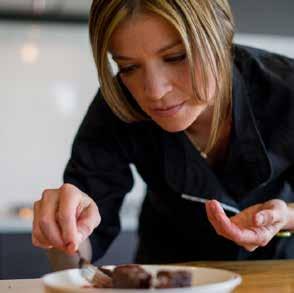
Method:
Using a small amount of unsalted butter add two eggs to a pan and cook on medium heat. Flip over the eggs when the egg white is solid, adding salt to taste.
Put the bean-filled tomato in the centre of the dish. Place the eggs to the side and arrange toast triangles next to the eggs and enjoy!



For this recipe, Chef Melissa used an unflavoured CBD oil from grn.
As seen on NETFLIX & The FOOD NETWORK!
An experienced cannabis chef, CBD consultant and edible developer, Chef Melissa loves to cook with cannabis. So much so that she was a contestant in episode two of Netflix series ‘Cooked with Cannabis’. She has also been featured by the Food Network on US television hit ‘Chopped’. In a special cooking demo for CBD Live at VOXPO, the Cordon Bleu-trained chef will give an insight into the dos and don’ts when cooking with CBD, including tips on dosage and flavour.
For these recipes and more, visit the CBD LIVE Cooking Theatre at VOXPO. Voxpo-event.com

“The egg yolks have a higher likelihood of staying intact if you allow the eggs to warm to room temperature before cooking!”
These CBD and lemon tea biscuits can be prepared two days prior to your la di dah tea time, but the lemon cream should be prepared on the day.
• 1 or 2 tea bags of your favourite tea. Most black teas will work with this application.
• ⅛ teaspoon super strength lemon oil



• ½ of zested lemon (≈ 1 teaspoon)
• 2 cups full fat milk or 1 cup of heavy cream and 1 cup of full fat milk
• Your desired amount of CBD oil or tincture (I used a natural flavour)
I like to add enough CBD to get a concentration of 5mg per cup of tea. Start low and go slowly! Find what works for you and stick with it.
1. Steep tea to your desired strength
2. Mix all of the ingredients together using a whisk for two minutes
3. Transfer infused cream to a sealable glass jar with a tightly fitting lid
4. Refrigerate until ready to use
5. Once the tea is done steeping, vigorously shake the lemon cream and add the desired amount to the tea.
6. Stir and enjoy with a lemon tea cookie or two!
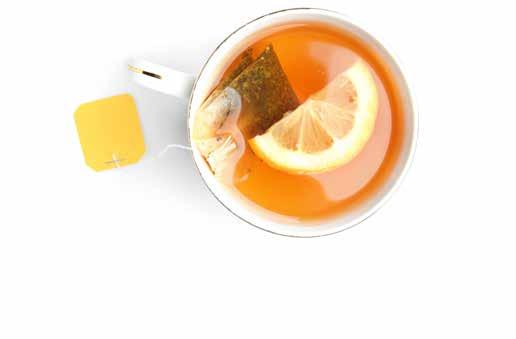
• 2 cups (250g) all-purpose flour
• ⅔ cup (150g) granulated sugar
• ¾ tspn fine salt
• 2 sticks or 1 cup (250g) of cold, unsalted butter, cut into very small cubes
• Lemon zest from a large lemon
• 1 tspn vanilla bean paste or caviar from 1 vanilla bean (or ½ tspn of vanilla extract)
• ¾ tspn any brand lemon oil. [Do NOT use lemon extract]

• Your desired amount of CBD oil or tincture (I used a natural flavour)
• 2 cups (250g) icing sugar
I like Lorann’s Superstrength Lemon Oil and it is available online!
I like to add enough CBD to get a concentration of 10 mg per cookie. Start low and go slowly! Find what works for you and stick with it.
Method:
1. Pulse together the flour, sugar, salt and vanilla in a food processor
2. Pulse dough until it begins to become crumbly. Add lemon zest, lemon oil and CBD. Pulse until fully incorporated. [Typically, this requires 5 or 6 pulses.]
3. Press dough into even layer onto a prepared 8-inch square baking pan or scoop individual cookies onto prepared cookie sheet using a small cookie scoop.
(To prepare a pan/cookie sheet, lightly grease and use parchment paper for easy removal).
4. Place pan of dough in freezer for 1-2 hours or overnight
5. When ready to bake, preheat oven to 350 degrees F or 165 degrees C
6. Place square pan or cookie sheet into oven.
7. Transfer to a cooling rack
8. Toss cooked cookies into confectioners’ sugar to coat.

Square pan: Bake 35 to 40 minutes
Cookie sheet: Bake 5 minutes, rotate pan and bake 5 minutes more or until the bottom of cookie is lightly browned.
For these recipes and more, visit the CBD LIVE Cooking Theatre at VOXPO. Voxpo-event.com
The only print and online CBD gift guide in the UK.


 Greenheart CBD | Huna Labs | Elite Mii | Unlike CBD | High on love | And More
Reviews by Gordon Stribling, Caroline Barry, Katie Loomes, Benedict Jones and Róisín Delaney.
Greenheart CBD | Huna Labs | Elite Mii | Unlike CBD | High on love | And More
Reviews by Gordon Stribling, Caroline Barry, Katie Loomes, Benedict Jones and Róisín Delaney.


Hands up if you are craving a last minute dash to the sun? (Me!) So many of us have had trips cancelled this year. If you haven’t been able to take to the skies, you should at least get a taste of summer before long and a burst of citrus is one way to boost your mood. Ahem, (Aperol Spritz anyone?) The majority of CBD oils on the market today are either au natural or have been infused with peppermint. So this trendy take on the classic tincture is a great spin, but adding orange is a hard line to navigate. Like with chocolate, a taste of tangerine can be the most delicious thing to cross your lips or just too full-on.
Leave it to the gang at TRIP to create summer in a bottle. Available in 300mg or 1000mg in a 15ml bottle, this is one my favourite tinctures at the moment. Oh and they also added chamomile for an extra splash of calm.


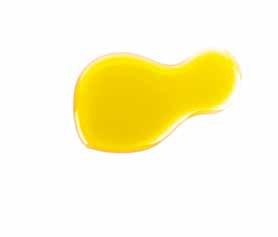

Greenheart CBD arrived just in the nick of time on a day that I was lying in bed with a migraine and couldn’t move. I’m no stranger to reaching for a tincture when I have a headache or I’m not feeling well but having one literally arrive at my front door that day was a nice feeling.
The Greenheart hemp farm is located in County Meath in Ireland so this was also my first experience of trying Irish CBD from Irish-grown hemp. Greenheart offer a range of strengths at 2.5% or 5% and with a range of carrier oils such as flaxseed or hemp, depending on preference. I had the hemp seed mix which includes omega-9 fatty acids, vitamins, and minerals like calcium, iron, magnesium and zinc along with 1500mg of CBD in 30ml bottle with zero-THC. The taste, despite it being a hemp base, is actually milder than some of the tinctures I have had in the past with no harsh aftertaste so it is perfect for anyone sensitive to strong tastes. I found a little went a long way and I would say a few drops not only lifted my headache but helped me to actually get a little bit of sleep.
We’re always hearing of new products to try. Whether you are new to CBD or a pro, here’s a few we think you’ll like.
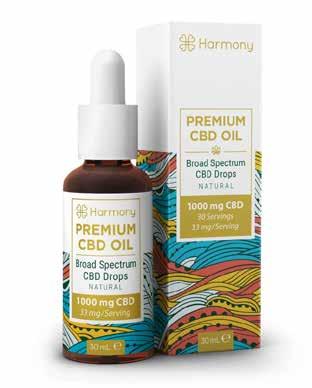
From first use, you can tell these 1000mg oil drops are of a high quality. One full pipette contains 33mg of broad spectrum CBD, so you don’t have to worry about the presence of THC. I love to see lots of information on packaging, and Harmony supplies more than enough for even the newest of CBD newbies to be able to understand what they are getting from this product. It’s always a sign of a transparent brand when the packaging comes with a QR code to scan. Unfortunately when I tried to scan the code on th box, the page didn’t appear to be working on the website. Nevertheless, the presence of a QR code is a very reassuring feeling because you can load the entire
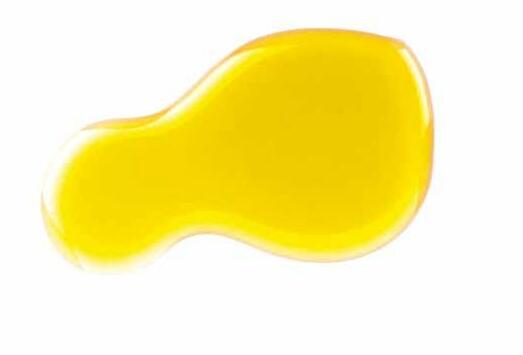
is a higher concentration of CBD available from the same brand. The makers also produce a 1200mg spray bottle. They say this product was made with jus hemp and love, and I’m a believer. If you are in the market for a peppermint tincture that has been crafted to taste more like peppermint extract and not the typical mouthwash flavour, Love Hemp’s 400mg spray tincture is a great starting point.


I like! In fact, I love the packaging. With so many CBD oils out there, the first step is to stand out. This 10ml bottle does just that as it comes in a cylindrical tube resembling a multivitamin. How does the product fare? The clever folks at Unlike haven’t just bottled some CBD extract and said





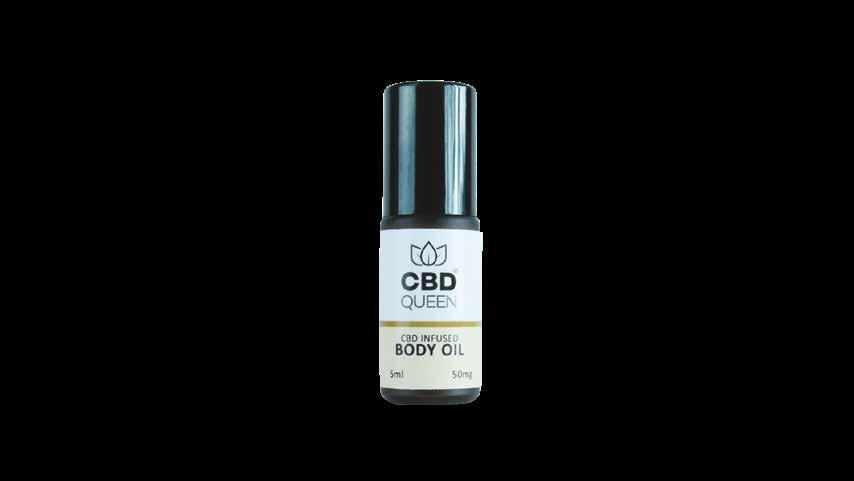

Free sample with this issue in shops only!
Brighton-based CBD Queen make this luxurious oil which seeps into the skin like water on a sponge. With notes of lemongrass and grape extract, this is a refreshing spritz of vibrancy, with the addition of CBD for those really dry areas of the skin. The roll-on application works well in targeting specific areas, almost like a light massage pen. The sample size contains 50mg of CBD, but the full 100ml bottle gives you 1000mg of CBD, which is a great amount to find in a skin care product. We hope you love this product as much has we do!
CBD patches are a hit in the US especially in the female market as there is emerging evidence of CBD transdermals helping with cramps and inflammation. Until now, there weren’t many places doing patches on this side of the Atlantic. Huna Labs sent me their broad spectrum derma patch which the makers say is fast acting and provides a release of CBD over a 12-hour period. This is already ahead of the US trend as most of the similar products on the market there say to remove after four, six or eight hours. I got 30 patches in a pack, so I had plenty to work with on this product. Each patch contains 10mg of CBD, which over 12 hours might not sound like a lot. On my first attempt, I secured a patch to my lower back which often presents a niggle. On application, I felt a heated sensation, not too far removed from a CBD muscle gel. But this is less messy and you can get dressed without waiting. I was also surprised at how easy to use the patches are. It’s easier than opening and applying a bandaid and the patch itself resembles an inch-wide sticky tape. This is a novel product which I have continued to use and have since made a recommendation to a friend with endometriosis.





Chill Brother is an uber cool brand out of Manchester that resonates chilled vibes. We took a vote at the office and four out of five of my co-workers thought this oil smelled like a high grade spa oil and made them think of relaxation. The massage oil has been infused with CBD, as well as other soothing plant extracts like eucalyptus, peppermint and lavender. You can rub it into skin directly or add a few drops to a bath and some Epsom salts like I did. The price is just as sweet, this 1000mg oil is only £27!



This British brand was founded by a super fit man called James Marsh, who after years of Olympic lifting needed something to help his aches and pains find harmony. Fast forward three years and Doctor Green’s has a hand in every aspect of CBD, from tattoo butters to vapes to oils and now a day cream for women. The 50ml tub contains UK-sourced ingredients like shea butter and lactic acid, which is very trendy right now in the world of facials. Day creams are growing increasingly popular thanks to the anti-oxidant properties of CBD helping to retain moisture as the day goes on. Plus there is emerging evidence that CBD, when applied onto the skin, may help regulate the production of oil, the acne-causing culprit. This product is ideal if you want to introduce CBD to you skincare regime as it’s not laden with the extract or a bunch of nasty additives. And it’s a nice price at £14.50 from doctor-greens.com
There is nothing more relaxing than a long soak in the bath and being the bath obsessive that I am, I’m always looking for the most luxurious bath oils. This month I was very excited to get my hands on HIGH ON LOVE’s hemp-infused Sensual Bath Oil, and it definitely did not disappoint. Adding a few drops to my bath water, I instantly felt like I was creating a spa at home with the luxurious calming scents, while spas across the country were beginning to reopen. Afterwards my skin was left feeling noticeably softer, my mind much calmer and ready for a good night’s sleep. This bath oil could definitely be a new



VG/PG ratio: 50/50
CBD content: 200mg (20mg/ml)
Made with CBD Isolate
Throat hit: Mild
Strawberry tends to be a great choice for those new to vaping CBD, so how does Eden CBD’s offering fare? The strawberry note here is rich and candied. It has a bright sweetness, with moderate sticky mouthfeel that coats the palate and lingers after vaping. There is some authenticity to the flavour but it mostly resembles a strawberry gummy to me. There is a mild isolate flavour on the finish but nothing too intrusive and it certainly shouldn’t be a deal breaker for those who prefer minimal CBD flavour in their products. A simple, solid CBD vape solution.
VG/PG ratio: 0/100
CBD content: 600mg (60mg/ml)
Made with CBD Isolate
Throat hit: Mild, when diluted 1-part CBD shot to 3 parts e-liquid
CBD shots have become a popular product category among those who vape their CBD, packing a high concentration of CBD into a small bottle, which can be added to e-liquids or a partially filled tank. I diluted my CBD shot into 30ml of nicotine free e-liquid, to achieve a final concentration of 15mg/ml, which I find to be enjoyable for vaping applications.
Eden CBD’s offering is clearly of high quality, imparting almost no isolate flavour or additional throat hit when diluted. This makes it a great tool for adding a CBD twist to your favourite vape blends, which otherwise might not be available with CBD pre-mixed. At £29.99 for 600mg, this shot is a versatile and affordable way of giving CBD vaping a go, without compromising on flavour.



I’m of the opinion that nothing beats a nice cold glass of wine in the garden on a sunny evening. Will I change that to include a nice cold glass of CBD-infused wine? Cannawine makes a selection of Spanish wines from the Costa Brava region, including red, white and sangria, each infused with CBD and 50mg of hemp extract.
The white, which I sampled, is described as a combination of Macabeo and white Garnacha grapes best served cold with tapas, seafood or rice dishes. I followed the instructions of letting the wine breathe by opening it and leaving it for a few minutes. It can be difficult to get your head around the wine at first, it almost appears cider-like in appearance as its a cloud of white liquid. I noticed that I felt more relaxed and chilled after a glass…or two compared to the feeling I would get from the original vino. While it’s hard to know how much of that is CBD and how much of that is the 14.5% alcohol, I had a very pleasant sunny evening. It’s a light, fruity taste with a refreshing sweet aftertaste.


The CBD drinks market has really kicked up a gear lately. Rum, gin, vodka, beer – it seems us Brits can’t get enough of this paring of the old and the new. That said, we haven’t seen many canned offerings, which is what makes Doña Sofia Gin & Tonic all the more intriguing. Made with Top Classic Gin, this is a fruity take on the classic combo, with the lemon and lime peel and orange in particular helping to offset the gin flavour. It’s worth noting that this tiny can contains 15.75g of sugar, so you may not be knocking these back if you’re on a health tip. Perhaps the folks at Doña Sofia could consider low or no-sugar versions of this and their forthcoming Rum & Cola and Vodka & Lime offerings? Still, a cheeky can or two beside the barbecue before the summer ends would be a great


If there was ever any doubt that CBD had become little more than a marketing gimmick for some brands, E-Fast brings you their CBD Classic Energy Drink. With a CBD content 0.004% crammed into each 250ml can, this Red Bull-reminiscent brew takes microdosing to a whole new level. To its credit, it does taste a lot like the bovine beverage, which will be a selling point for some and there’s a caffeine punch too. But the misspelling of ‘cannabis’ in the ingredients list should tell you all you need to know about this “CBD” drink.


and ridding the body of toxins. In the past I have found Rooibos tea to be quite nutty, musty and almost tobaccolike in scent. So what’s it like with CBD added? When you open the pouch, you get a wonderful sweet botanical-like smell. After steeping for 10 minutes, it is gentle to taste but still with that sweet, nutty taste. CBD is definitely an enhancement on the average Rooibos blend. A little goes a long way too. In an average sized bag you get 50g of tea. At most, all you need for a pot is 15g. I added half a teaspoon of




Put anything with chocolate in it and I’m bound to love it. Yet CBD mixed with chocolate can often be displeasing, it’s a real crowd divider as not everyone likes the hemp fusion. Dorset’s Solkiki Chocolatemakers Iris and Bob have created something curiously delicious here, they are award winning chocolatiers after all. You get the taste of CBD in a very similar way to when sampling a cannabinoid-infused honey. At first, it’s all about the cacao and the sweetness but then the hemp aftertaste lands with a touch of bitterness, perhaps the bitterness is heightened because this is dark chocolate. I sampled the Gran Native 63% coconut dark milk chocolate bar, which contains 77mg of CBD. I love that the product’s provenance is on show across every corner of the packaging. The white cacao beans used in this bar originated from the northern coast of Peru. Whats better than a bar of chocolate? A tale to go with it… Thanks Iris and Bob!

Name: Carrie Strouther Age: 23 Hails from: Mansfield, Nottinghamshire Qualifications: BA Hons Music Business, First
What’s your day job?
I’m the face behind the social media and email marketing at The CANNAVIST. Any comments you post, this is who is replying! I create monthly plans for what you see on our social networking channels. Giving you the best content from the latest issue and everything from our fantastic blog, alongside the latest CBD products we think you might like. When a breaking news story comes to us, I shift things around and make it work. I am also the resident baker here at HQ. Any recipe we do, I’ll make it at home and bring it in so we can take some pictures for the blog and socials and then we all get a tasty treat. It’s a win-win of good content and delicious goodies for my colleagues.
What’s it like working at The CANNAVIST?
Everyday is different. There is never a dull moment, as cliché as it sounds. There will be stressful days, but never boring ones. We can always be found trying new CBD products, especially the gummies (we love those). There will often be competitions in the office where a range of prizes will be on offer, often both personal and one for the whole office. We recently had a week of them to celebrate the fifth anniversary of the company. We had a picnic in the park and a game of rounders on the Wednesday, a BBQ on a Thursday afternoon and a company-wide Friday lunch. Do you have a favourite issue or cover?
It has to be issue 7. I can’t describe the love I have for it, I just love it! My long term love of Little Mix does also make it my favourite cover.
Most recently, Charlotte Caldwell. She’s not stopping in her pursuit of her son’s health. Even with every knock back she’s faced, she just keeps going. I only hope to be as strong as her.
Name one celebrity you would love to interview for the magazine?
Whoopi Goldberg! She’s an absolute powerhouse of a woman, she’s done so much. Her move into CBD on behalf of female reproductive health is an amazing step forward for all those with a vagina. Are you working on anything new and exciting for the magazine?
That would be telling. There might be a new feature appearing soon on the socials and the blog, which is very exciting, and you could say delicious. Have you ever met someone famous?
The one and only Chesney Hawkes when I was 12 at my local Christmas Light Switch on in the restaurant section of Debenhams. I was very close to Ricki Lake at an event for the Planted Collective in December. We’re in a picture together, just far apart!
Tell us something about yourself that not many people know…
I am the self-confessed roast potato queen. I like to think I make the best ever. We even had a contest in the office to settle this. (Yes, I kept my crown.)

Favourite CBD brand right now?
I am loving SunMed. Their oil drops are my go-to during the day, keeping me calm and relaxed at my desk.
Favourite workday snack?
Ryvita Thins Rosemary and Sea Salt Flatbreads. Perfect mid-morning pick me up to get me through to lunch.
Do you have any hidden talents?
I can remember specific days on which things happened. My friends will just remember what happened, and I’ll just spurt out the date (and sometimes the time!)
Workday playlist?
Full 90s cheese, with a side portion of 80s and 00s Kylie Minogue. Got to keep the day light and fun, or I would go insane. You can find me at my desk, having a little solo dance to Steps or the Spice Girls most days.
It takes a village to produce a publication. This issue, we’d like you to meet our social media executive Carrie Strouther aka the one who reads your comments.
